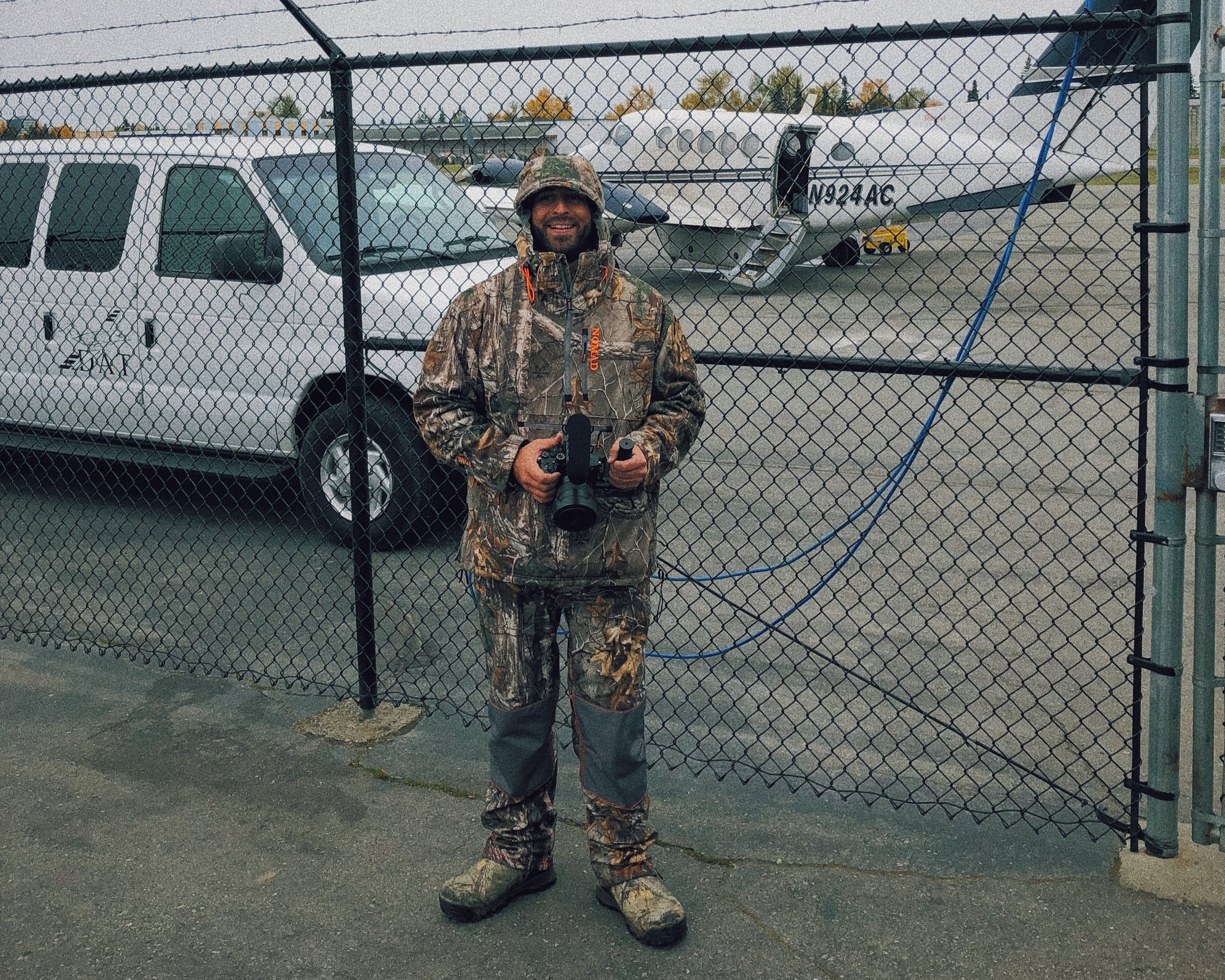In September 2021, I took a journey to the middle of nowhere Alaska to shoot video. The journey was exciting, challenging, and allowed me to go to a place in the world I have never been while having a front row seat to an activity I have never done, hunting.
Who? What? Where? When? Why?
Who: Myself, and a group of 7 hunters.
What: The hunters went to hunt Moose. I went to film and take photos of their expedition.
Where: We flew into Anchorage, Alaska and then took a small plane to a village called Russian Mission located on the Yukon River. From the village of Russian Mission we took a couple of boats 30 miles up the Yukon river to arrive at the site along the Yukon River where we would be living for the next 8 days.
When: The trip was 10 days long in September 2021. A day and a half in Anchorage upon arrival. 8 Days at our camp, and one day back to Anchorage. Then a redeye flight home to make it home in time for a wedding.
Why: The group of hunters wanted to experience the challenge of hunting Moose in the middle of nowhere on the Yukon River in Alaska. I was brought along for one reason, to capture the experience and put together videos and take photos of the experience.
My hunting experience and planning for this trip
I was not brought up in a hunting family. I can’t think of anyone in my family for the generations that I know of that have ever hunted. It simply was not something that was relevant to my life. This lack of experience made the preparation of this trip quite interesting. The first challenge was the planning of this trip was being done by others. I didn’t have a lot to bring to the table when it came to planning a hunt, so I had to trust the people I was going with. Their style of planning is different from mine, so that made the planning process different than how I would normally plan something. Another challenge was not having the clothing needed for a hunt in Alaska. I had to borrow a majority of the clothing I would need, luckily the guys I was going with had plenty to spare. There was very little I knew about this trip going into it. I knew the major details in order to physically get there, but so many of the logistics were unknown or would be determined upon arrival. I have been in that situation before, so having that prior experience helped, but for someone who is a planner, it made my mind race in several different directions for quite a bit of time leading up to the trip. There is a scene in the film Armageddon where Ben Affleck’s character asks Owen Wilson’s character if he is excited to go into space. Owen Wilson’s character responds: “I am like 98% excited, 2% scared, or maybe it is 2% excited and 98% scared, I don’t know, but that is what makes it so intense.” That scene and those words summed up perfectly, how I felt about this trip. Of course going to Alaska is exciting, but I was going to be in the middle of Bear country and how could you not be a little scared of that. It was quite a journey getting ready for this expedition, and it took getting to the airport and on the plane to be that friendly reminder that it was real and there was no going back.
The great weight conundrum
Prior to the trip we were told as a group that we had a certain amount of weight we would be allowed to bring. The weight each of us was allotted was 380 pounds and that includes our individual body weight. As someone who has traveled quite a bit, I had been in situations where I had to watch my luggage weight, but this was a whole new animal. I had clothes that were heavy because I was going to be in the elements. I had camera equipment I had to factor in. In that camera equipment I had to factor in all the different things I would be filming, and understand that I would be completely off the grid and may have limited abilities to charge the equipment I was using. I was able to get my weight to around 350 pounds. Once we got to Alaska, we learned that weight was all wrong and we actually had less available then we had planned. This was definitely one of the things that concerned me the most. Weight and small planes created a lot of anxiety for me. This weight issue had to be addressed, and luckily I was with people who had the means to do so. We were able to get a crate of our stuff on another plane. We did this the morning we left for Russian Mission and we put 800+ pounds of stuff on a pallet and it was flown to another city and then flown to the village of Russian Mission where we would be. We were just over 24 hours into this journey and it was already getting interesting.
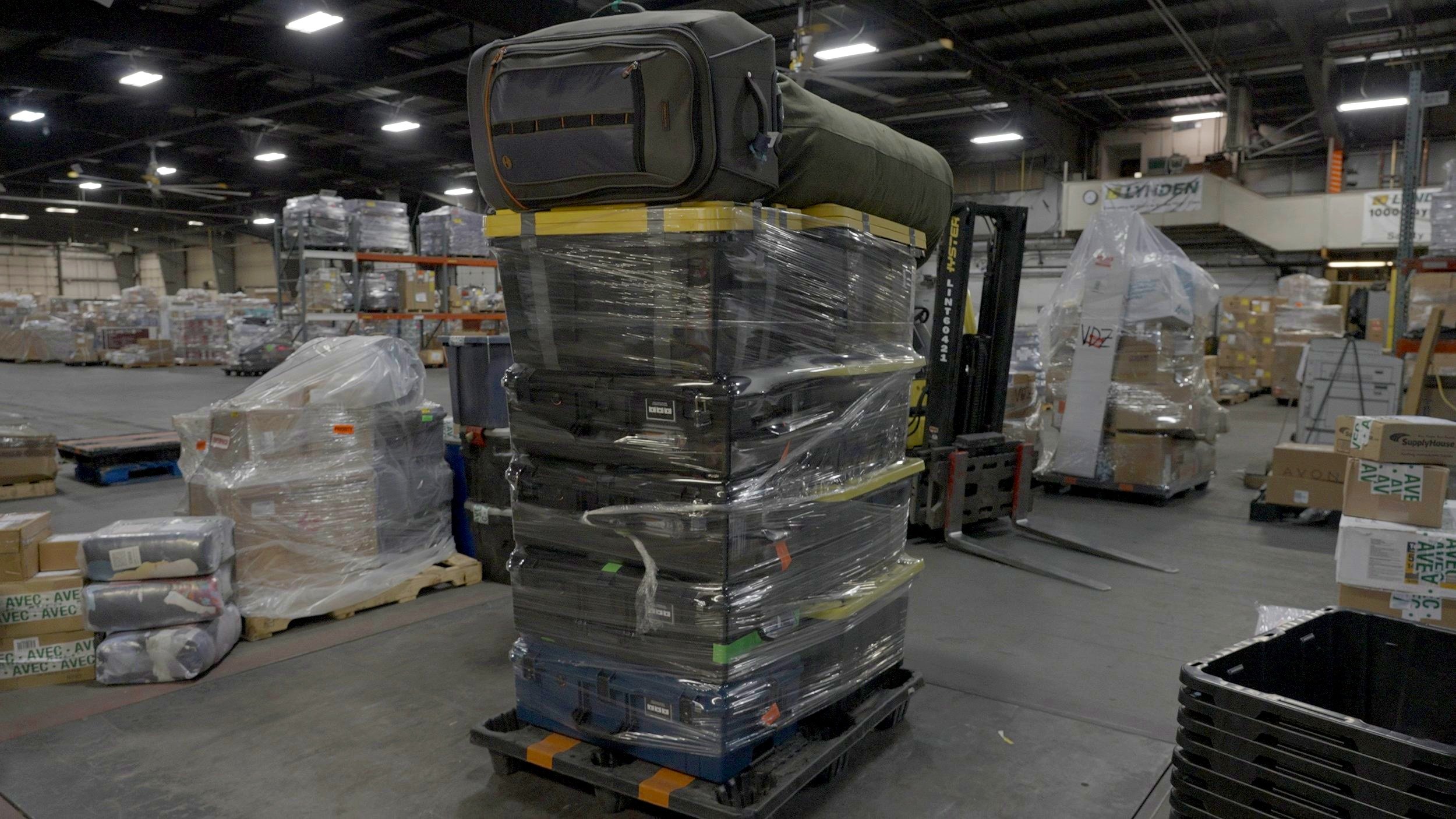

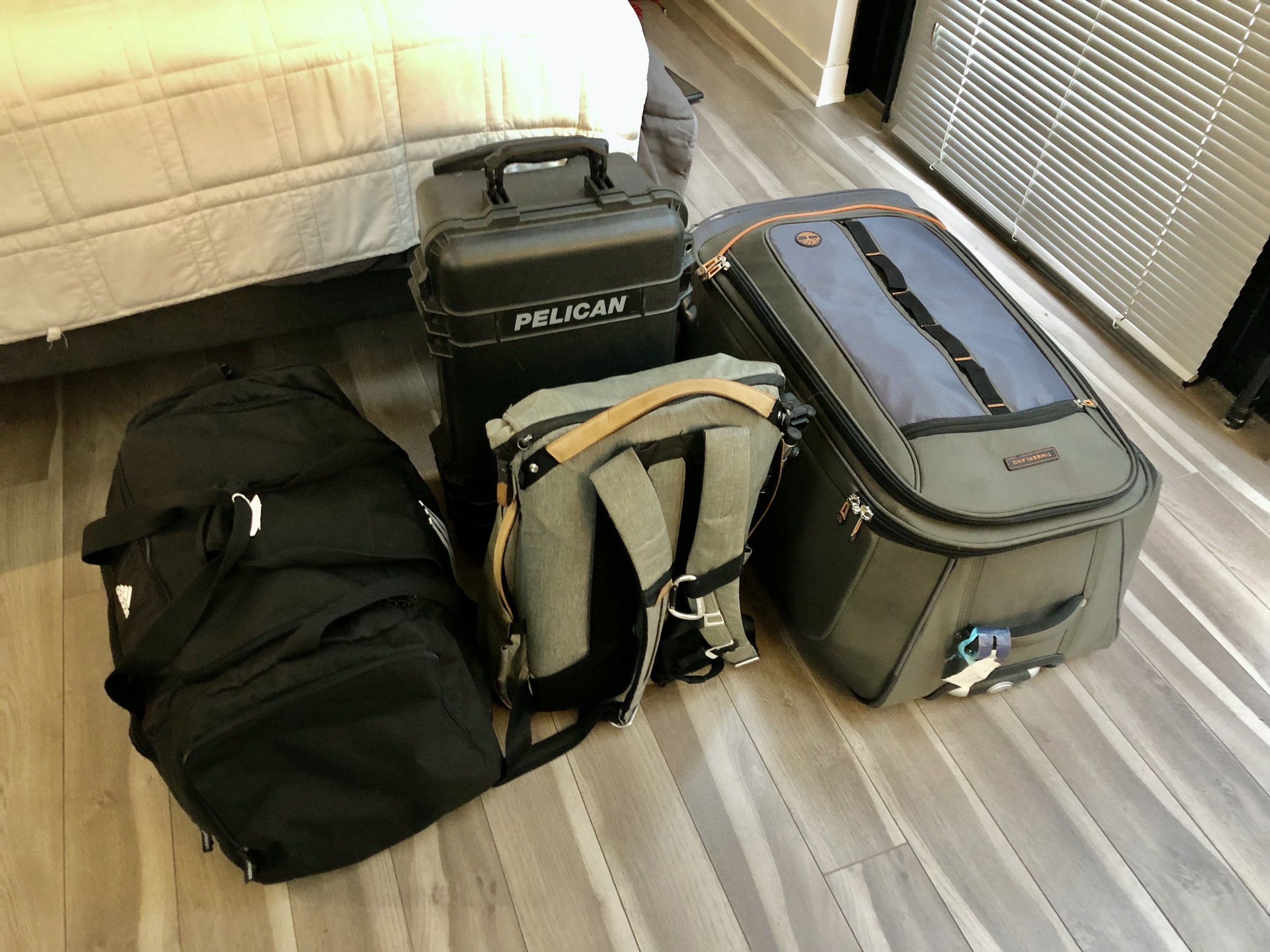
The journey to camp
After getting the weight issue resolved, we loaded up our 10 seater King Air plane and made our preparations for the flight to Russian Mission. The flight would be just under 2 hours. The 10 seater plane was definitely the smallest I had ever flown on. When you put 8 fully grown men into a plane like that, it makes it feel even more small. We sat down and were getting ready to take off, and the pilot was having issues with his headset not working. Obviously this is a crucial part of flying, so this needed to work in order for us to take off. We sat for a little bit while he tried to figure that out. After a while, we were back in business and ready to take off. We got in the air, and the flight was fairly smooth. It was crazy to be able to watch the whole thing take place and see the flight instruments in use, as this is typically something we don’t see when flying. It was a cloudy flight, so visibility was limited, but once we started to make our descent, I could see the river, the mountains, the trees, and the land that would become our home for the next 8 days. We landed on a dirt runway, unloaded all our stuff, and had to prepare for getting our stuff to the next place for our journey. The next leg of our journey was a boat ride to where we were going to be living. We were on the runway with all our stuff and needed to get it to the river. One of the guys in our group had friends in this village and they were able to use one of their vehicles to move some stuff, but one of my bags didn’t make it, so I had to get that one to the river myself. It wasn’t a tremendously long walk, it was just awkward, muddy terrain that you can’t roll a suitcase on. I carried the bag down, and made sure it didn’t get covered in mud, which I would late learn was ultimately irrelavant. Everyone else had to make a similar walk with some sort of baggage, and eventually we all made it to the river where we would start the next phase of our journey. We had to wait for our pallet of stuff to arrive, which took a few hours. We sat on the bank of the river, trying to make sure we were as ready as we could be. After a few hours, we saw a plane coming in and since this was a place where planes aren’t coming and going on a regular basis, we figured it had to be the one with our stuff. It wasn’t, and we continued to wait. A little later, another plane showed up and that was the one with all our stuff in it. Everything was dropped off on the runway, and we had to get it down to the river, like we did a few hours before. Everyone worked together, and eventually we had everything we brought on the river. It was time to put it on the boats. We were told we would have three boats, but it turns out we only had two. We had approximately 3200 pounds to get up river in two small fishing boats. In my head, I thought there was no way, but our local friends assured us it would be fine. It surprisingly was. We loaded up the boats and started to head to the river. None of us knew what the place where we were staying looked like or what kind of structure it was, we were told it was a “cabin”. After an hour on the boat, we arrived at the shore. It was a shore that looked wet and full of dark mud. I stepped out and immediately my boot sank into the ground to my shin. This caught me by surprise, and it was in this moment that I realized this would be what I would be dealing with on a daily basis for this journey. I wish I could say I learned how to step and walk in it immediately, but it took me a couple days to get used to sinking so much every time I was near the shore of the river. We got all of our stuff unloaded and made our way up a hill to find two small cabins, and were led to the one where we would sleep for the next 8 nights. The cabin was about ten by fifteen feet with six wooden shelves that made up a bunk bed type situation. This meant two people would need to take the floor. Two of the guys volunteered for that, which was actually really smart, as those bunk spaces were pretty tight. It was small, dusty, and would be home for this trip. Although it was small, it seemed well built and would provide a sturdy roof over our head and shelter from the cold at night, so I could not complain about that at all. I was not sure what to expect, but it was much nicer than I expected.

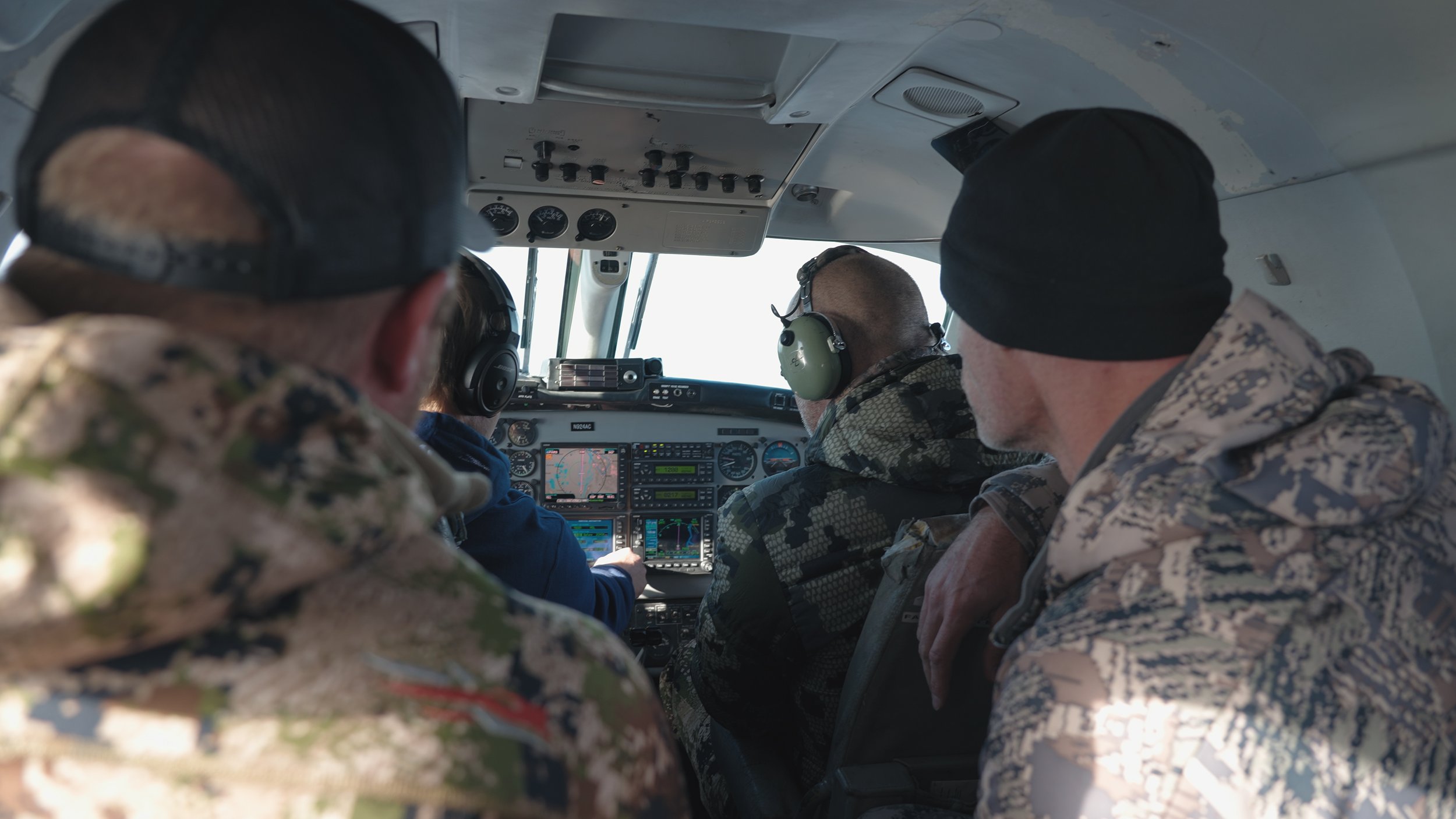
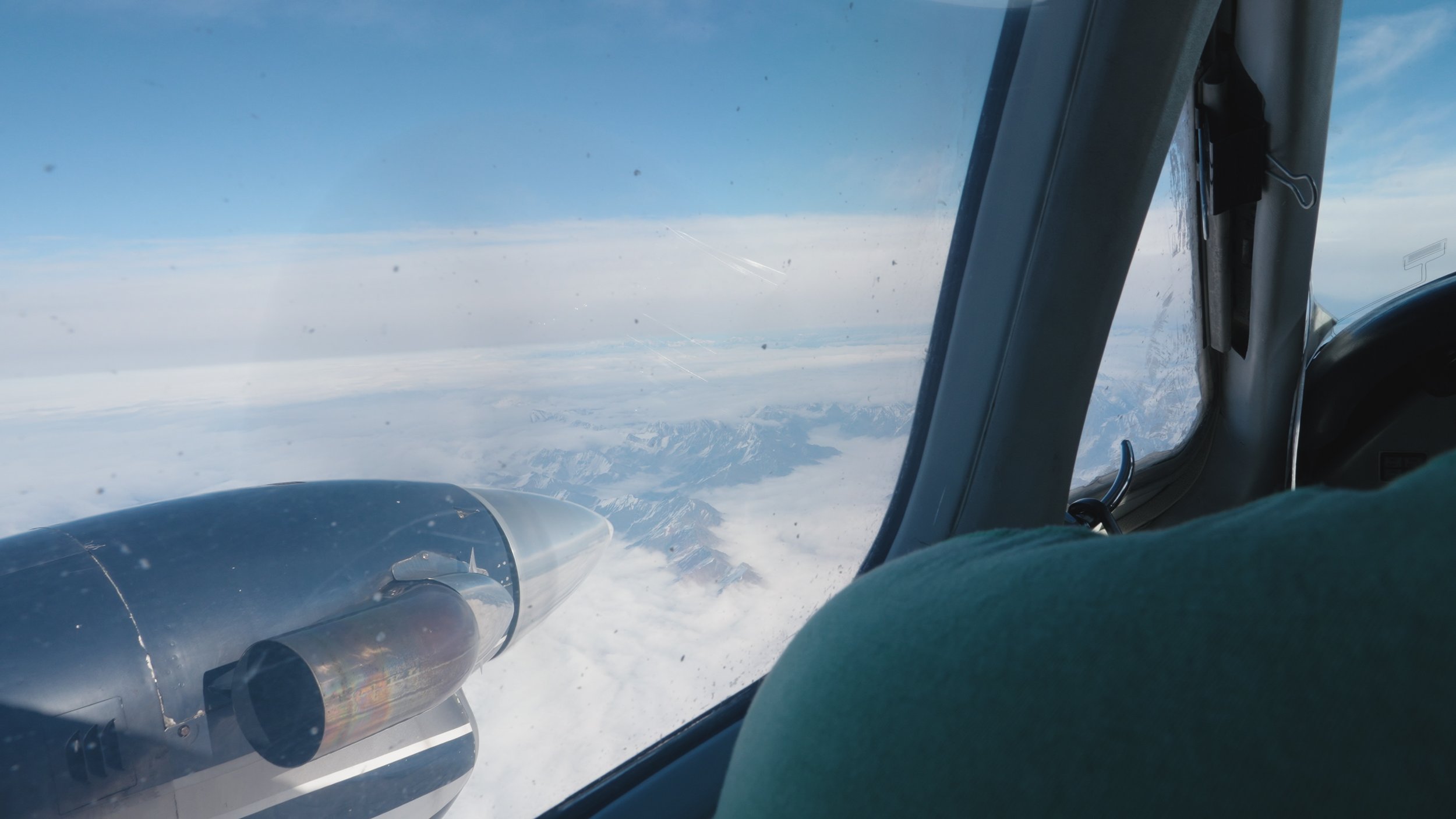
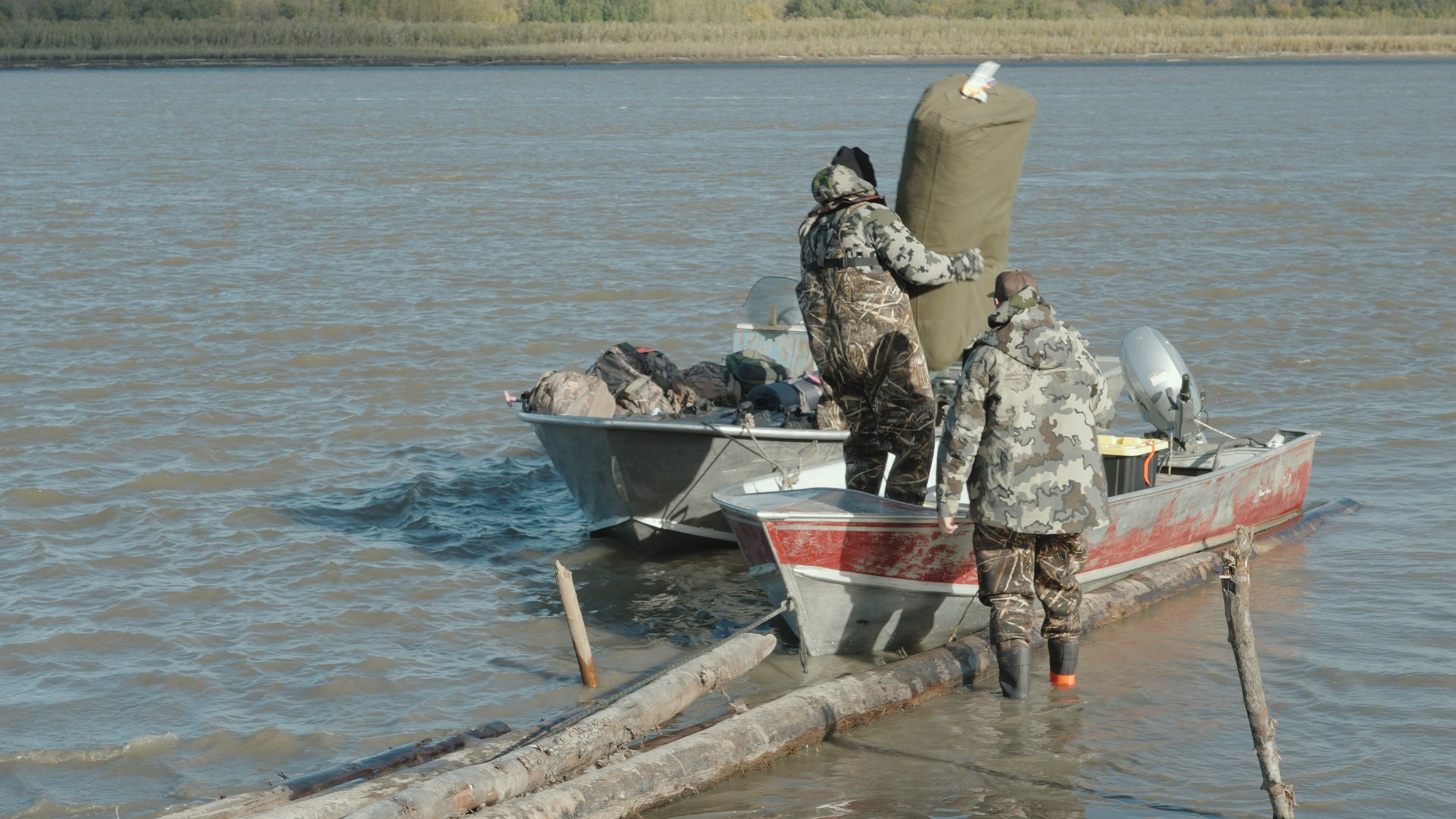
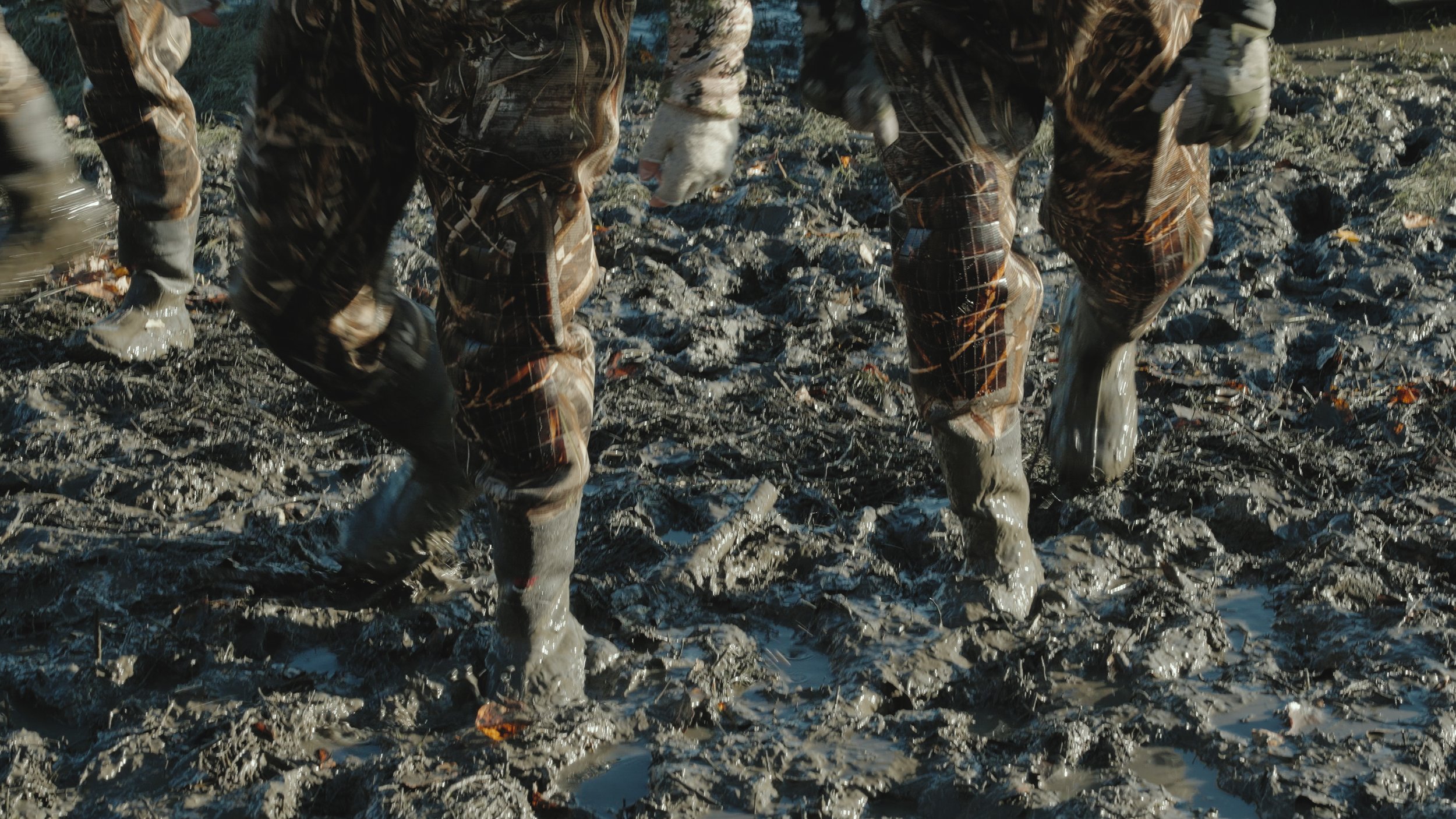
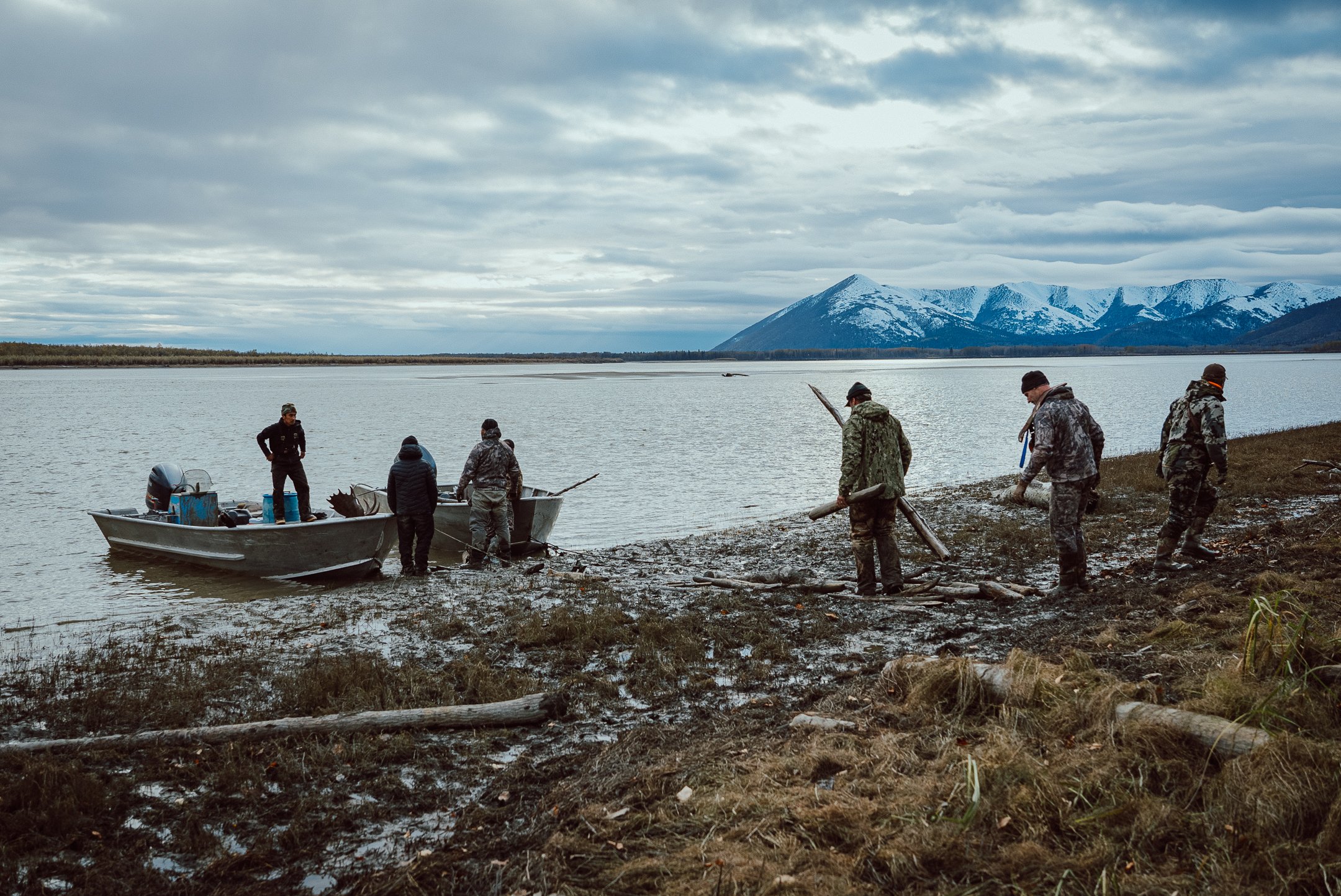
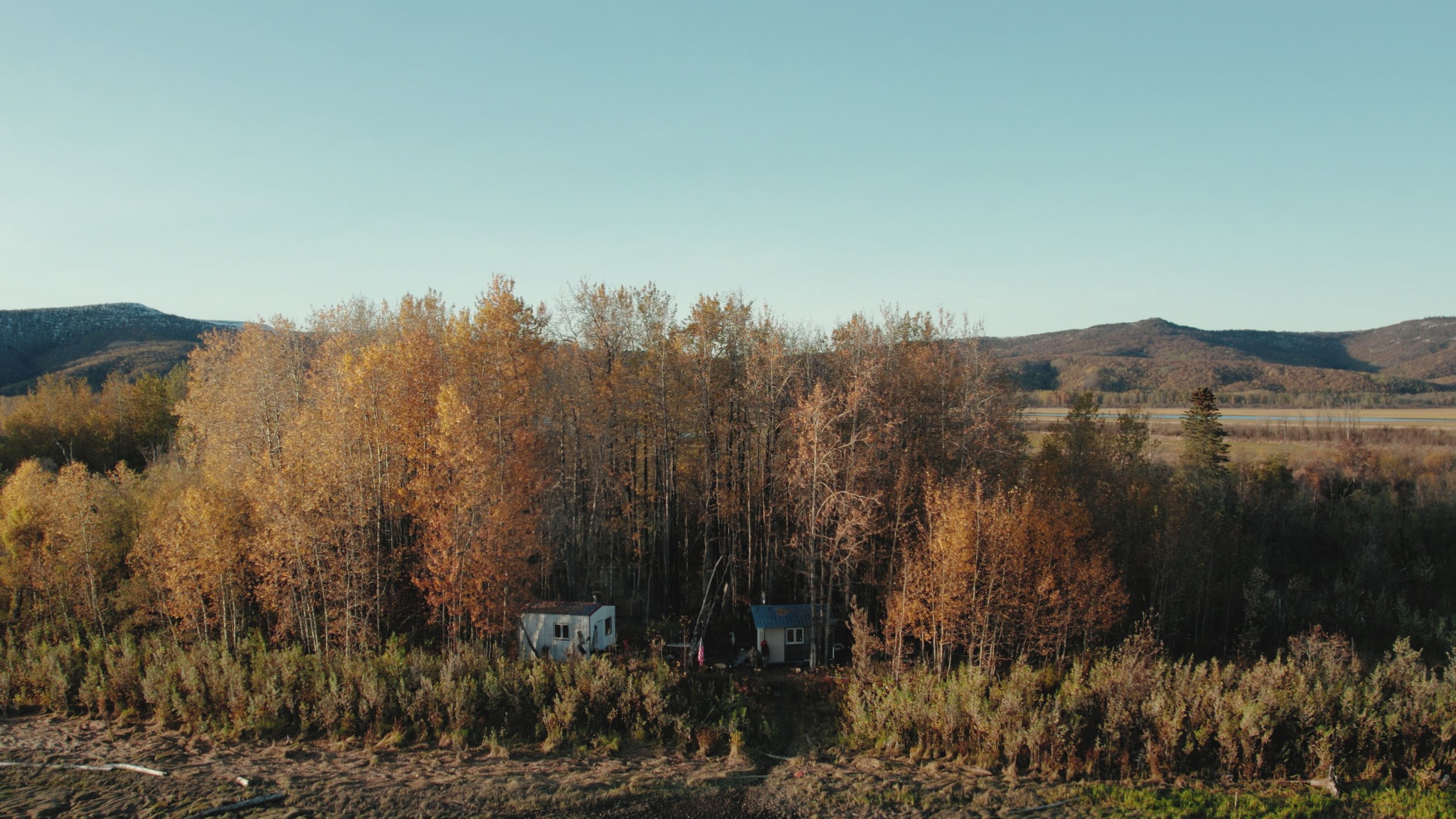
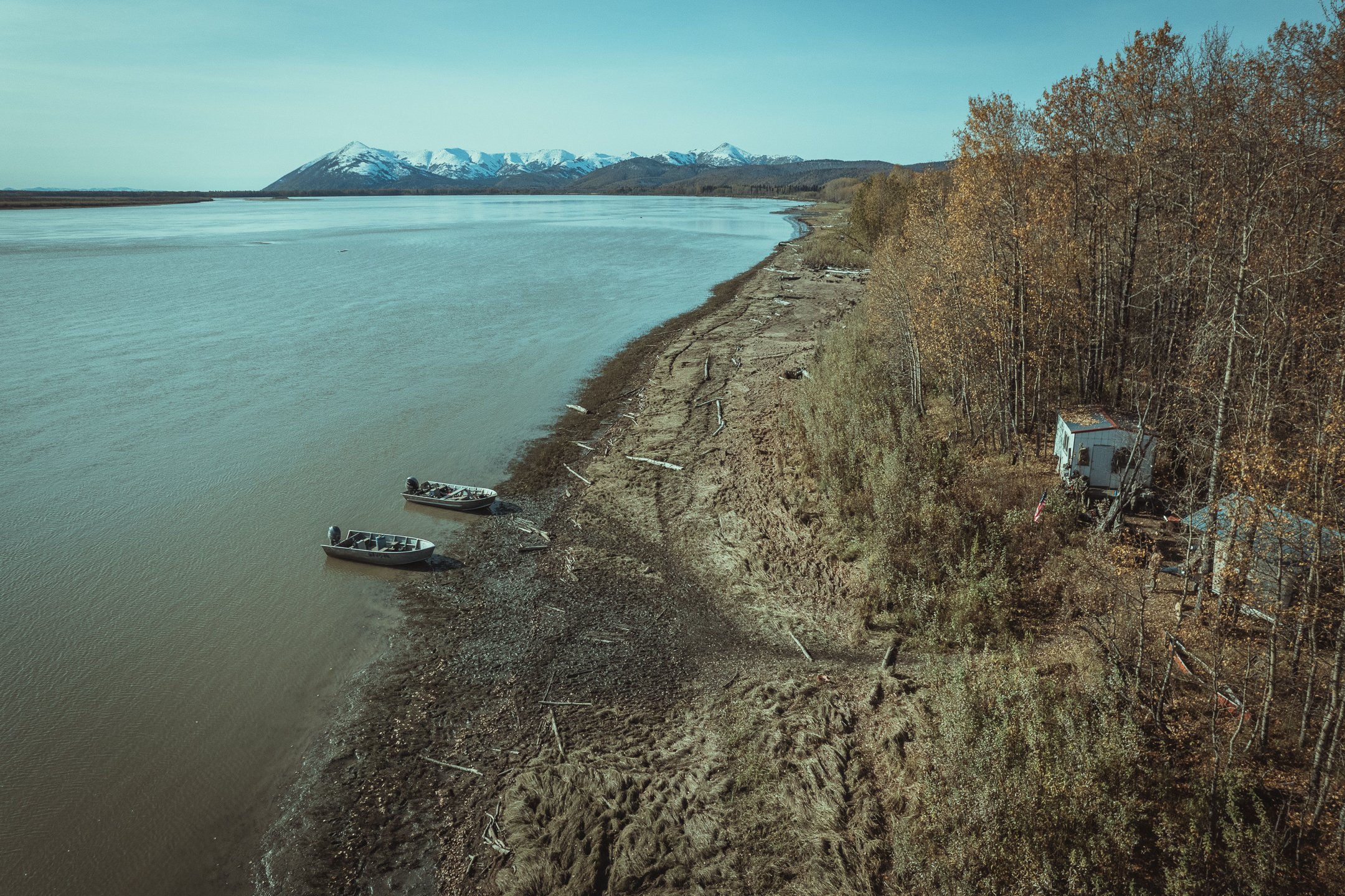
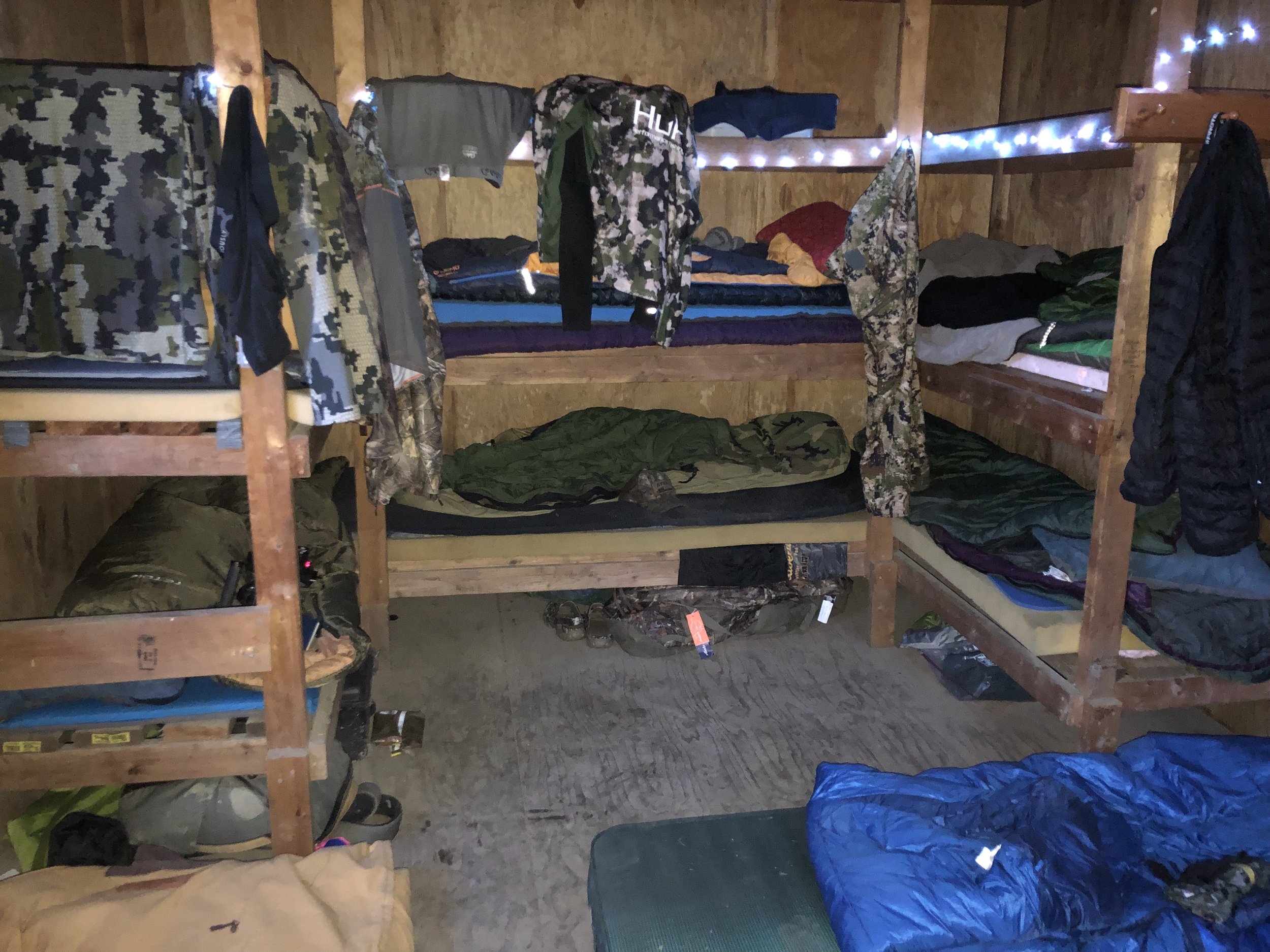
Nothing will be easy
It only took about a day to realize something about this trip, and that was that nothing about it would be easy. I didn’t think that it would be a cake walk at all, I knew there would be challenges, but after getting to camp and getting set up, it was evident that everything about the trip would be challenging. Being someone who enjoys getting out of their comfort zone, I welcomed this, but it wouldn’t be until the trip was over that I appreciated it. It seemed like everything we did presented some sort of challenge. It made the trip much more enjoyable, and reassured me to always respect good old Murphy’s Law.
First Moose Down
The first day we got to camp, we still had some daylight, and a group of guys wanted to go out and see what the evenings were like for hunting. The rest of us stayed at camp, and continued to set up. It felt like they were not gone that long when in the distance, a gun shot rang out. I don’t recall if there was another one, but I think there was. The thing about this place was that you could hear everything, and the sound of a gunshot traveled along the river like an air horn into a microphone. After a bit of time passed, in the distance you could hear the humming of one of the boat's motors getting closer and closer to camp. As it got near the shore, we could hear someone yell: “We got one”. It was the first night and a Moose was already down. Those of us at camp, hopped in the boat and went to see what it was all about. This was my first taste of getting into the boat in the evening, the air was brisk, the type of brisk that stings just a bit. The sun was setting and you could feel the temperature dropping as the sun slowly went down. We got to the shore, and hopped out. It was another sandy bank. The river was several feet below the shore. A steep drop off from the land to the river, dead tree trunks all around. You had to get out, and climb up. Once again, not tremendously difficult, but with a camera in hand, and the cold, it would fit the mold of being challenging like everything else on the trip. From there it was a few hundred yards through a thick, wet marsh and there it was, the first Moose I have ever seen in my life, and his life was over. At this point, we had only been at camp a few hours, everyone was tired after a long day, and I would imagine running on adrenaline. Decisions had to be made about the Moose, as the sun was now almost fully down. The cold night air was going to help the situation, as the below freezing temperature would help preserve the Moose, but it couldn’t be left as is, it needed to be gutted. From what I understand, the reason for this was to get all of the things out of the Moose that could tarnish the meat. It was cold and dark and the team worked together to take on this task. I stood by in the dark, using the headlamps as my only light to try and capture this happening. It took some time, but the Moose was field dressed, and it was time to return to camp. The Moose would be left overnight, and the hunters would return the next day to finish the job of processing the rest of the Moose. We headed back to camp, ate some food, and went to bed. I was tired and sleeping was not a challenge due to being so tired from the long day of travel.
The Hunts
Of the 7 hunters on the trip, 6 of them were able to successfully hunt a Moose. All of them were challenging in their own way. Each one in a unique location. Each one taxing in its own way to get back to camp. One was in a marsh and required rigging up a pulley system to retrieve it out of the marsh. This system consisted of chopping off the legs of the Moose, burying them and then using those as an anchor to connect to the pulley system in order to extract it from the marsh. Then there was the Moose that surprised one of the hunters in the morning at our camp, charged at him, and required him to blindly put up his gun and shoot, hoping to take him down. He did. The one hunter who did not get a Moose had a malfunction of his gun, and ended up with a wound on his face. We would later find out this situation could have been a lot worse, but luckily that didn’t happen. Seeing all of the work that goes into this process, and how challenging it is, was eye opening. In Alaska you are not allowed to leave more than 10 pounds of meat on a Moose. The hunters knew this and had to make sure to get the most meat they could out of each animal. Not only was it a challenge to hunt the Moose, each one a challenge to get back to camp, and then each one was as much of a challenge to get out of camp as well. As I have stated, nothing was easy, hunting was no exception. The thing about this group was that this was not a hunt just for a trophy to hang on the wall, it was about getting meat to take home as well. In the end, there would be plenty of that.
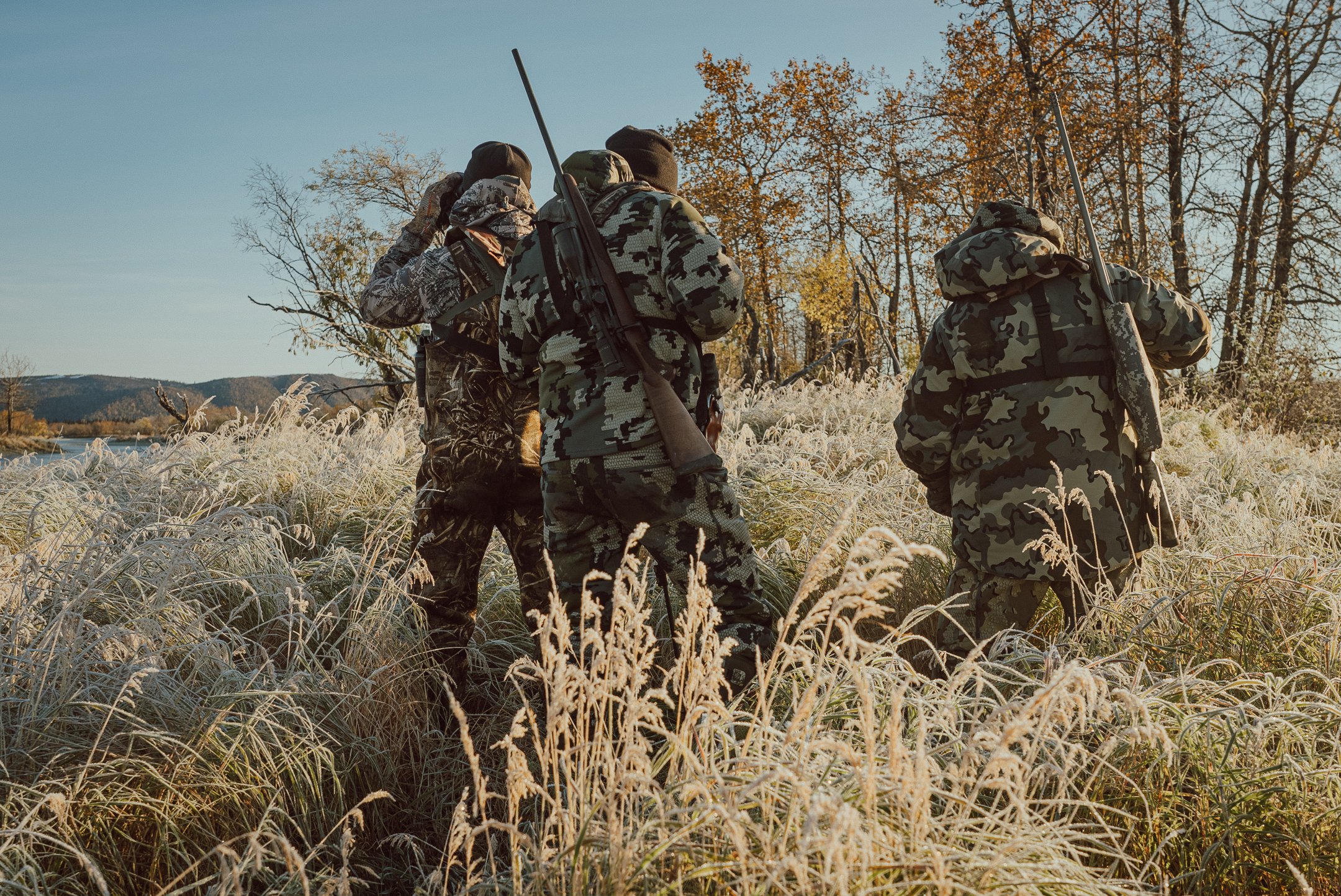
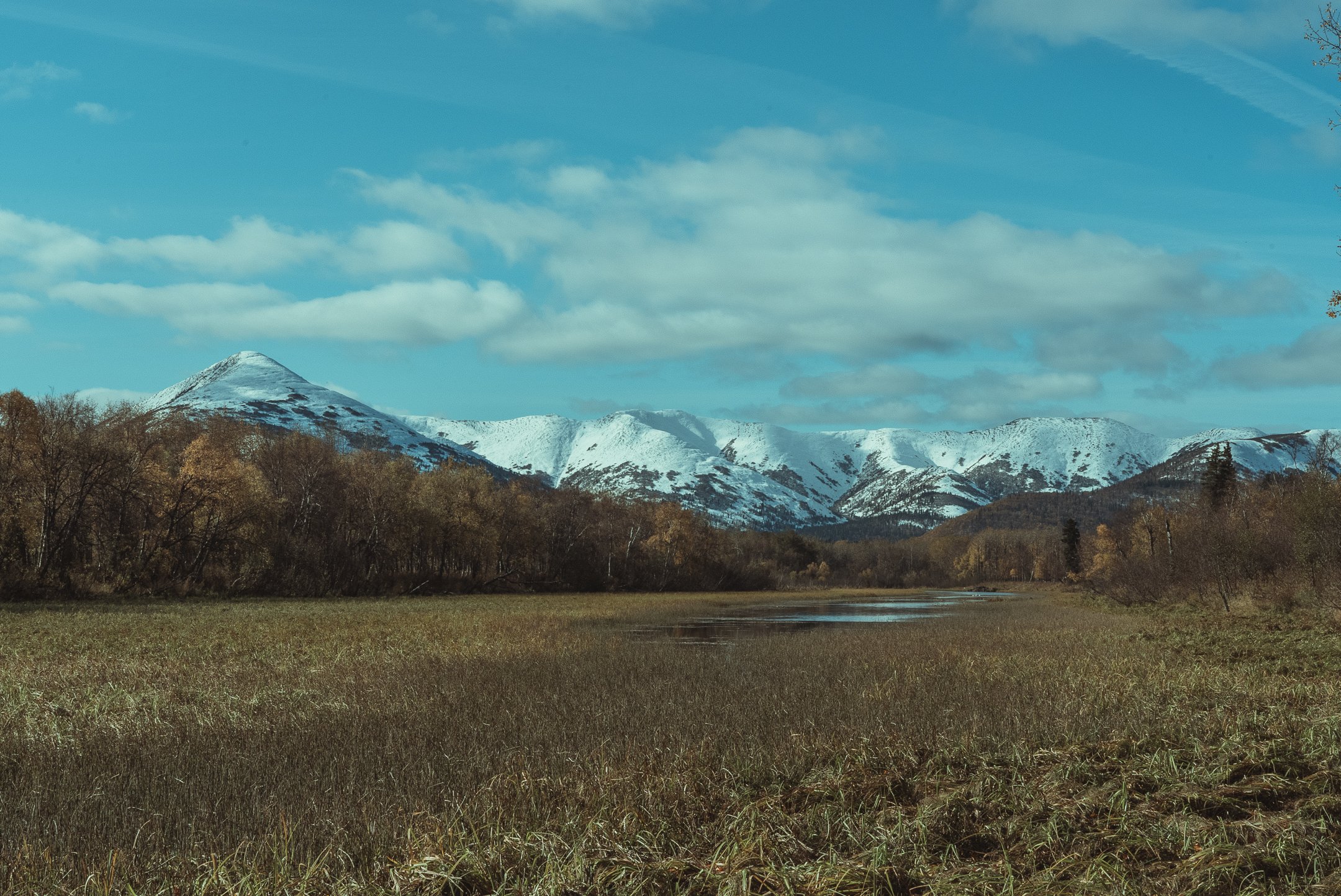
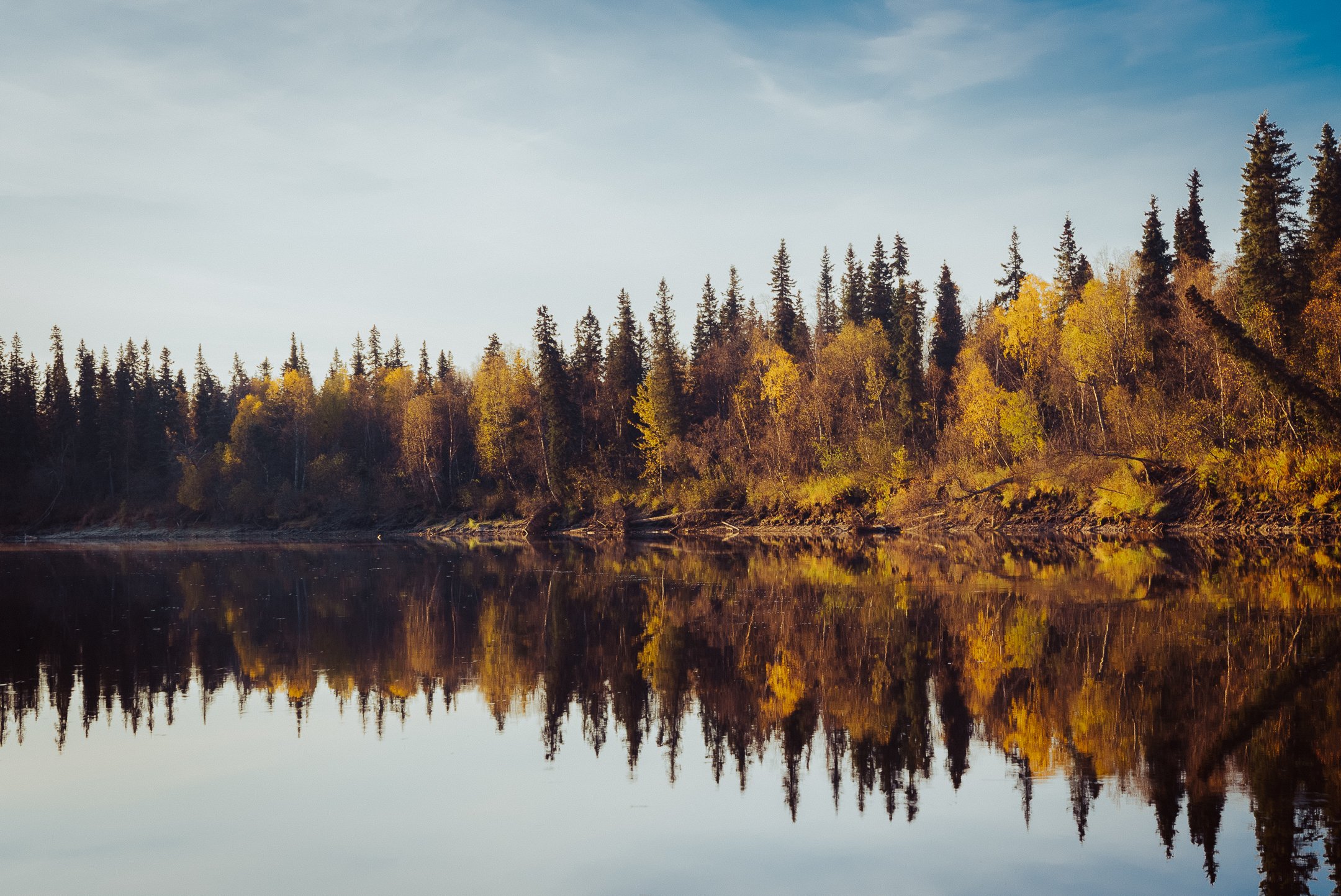
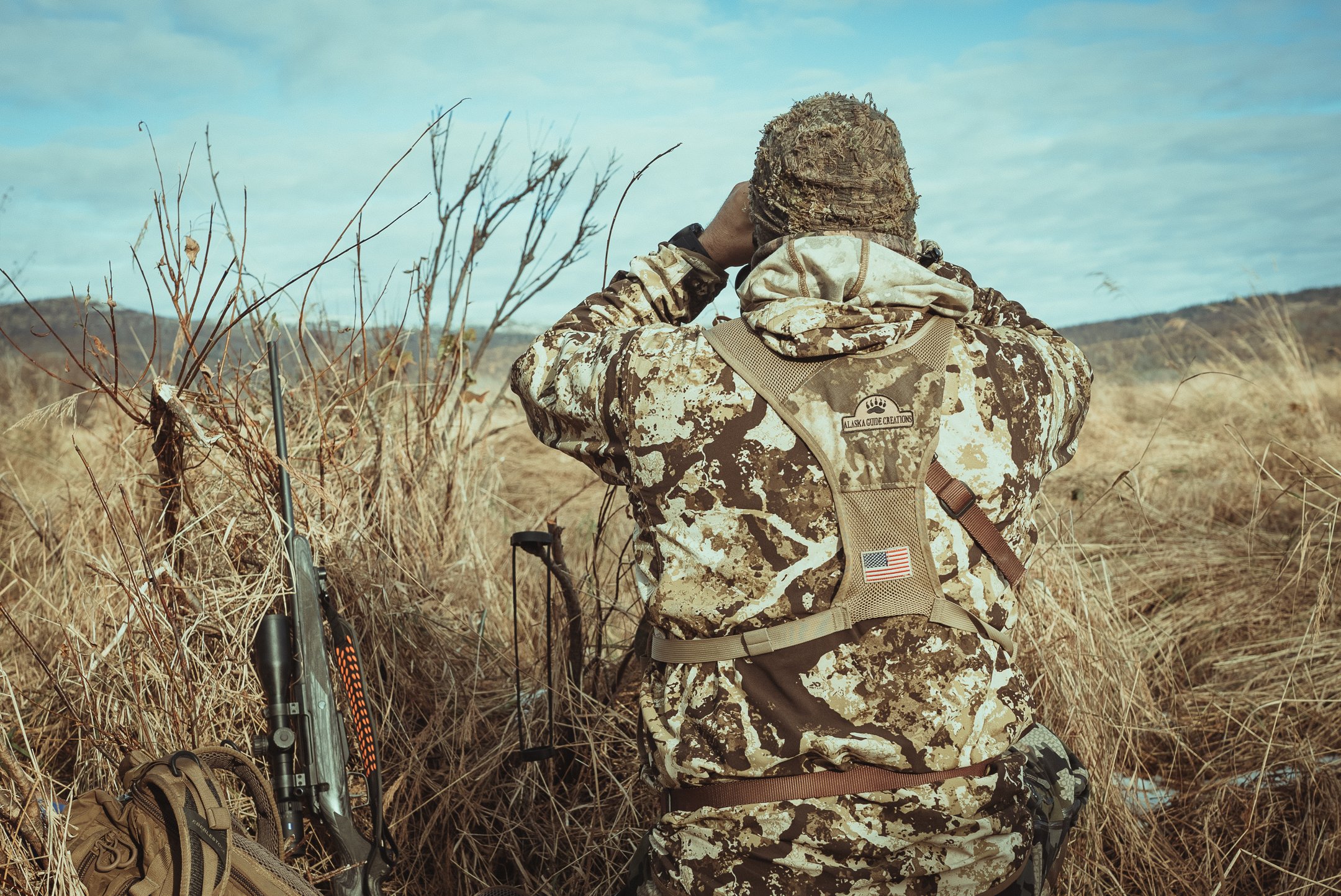
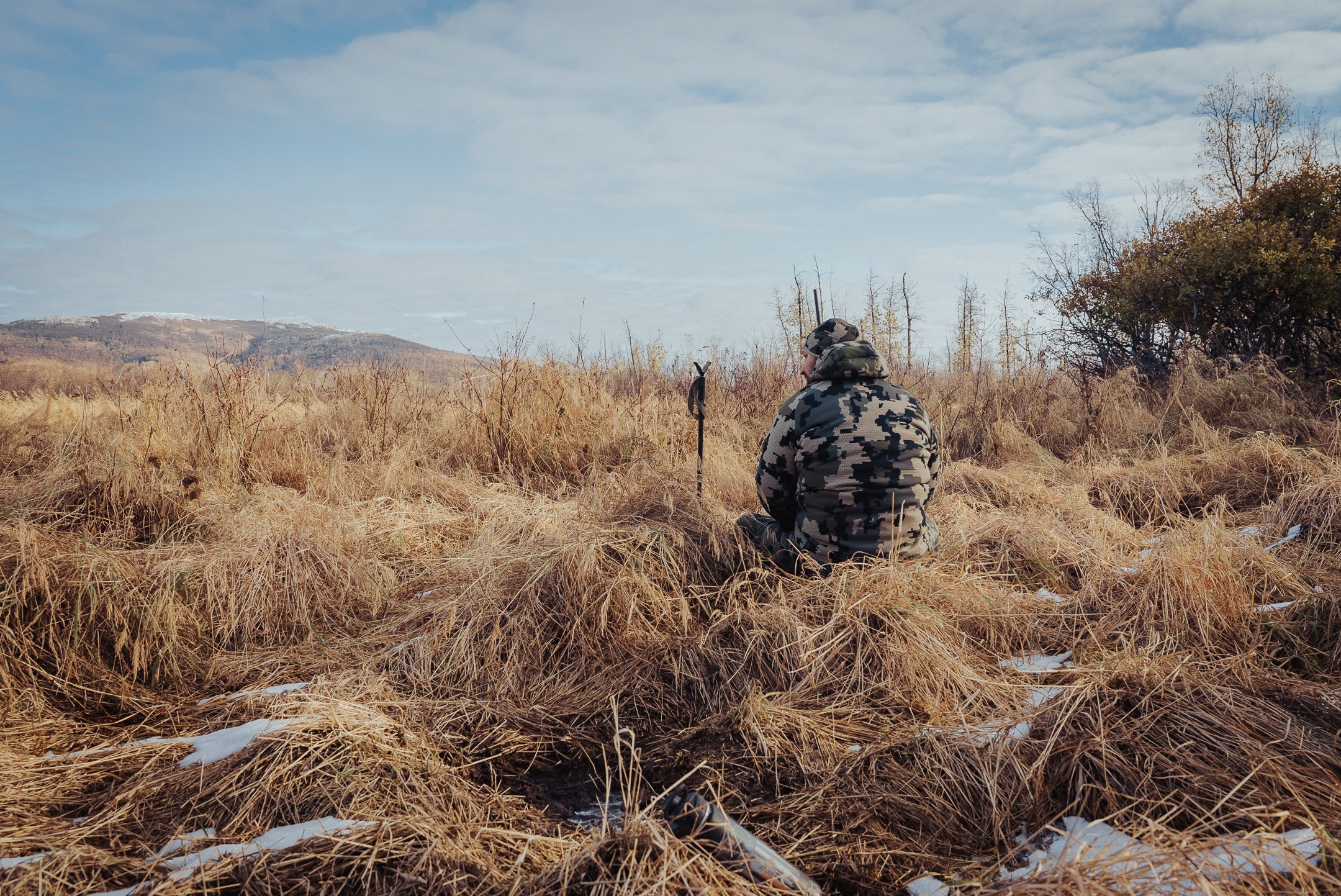
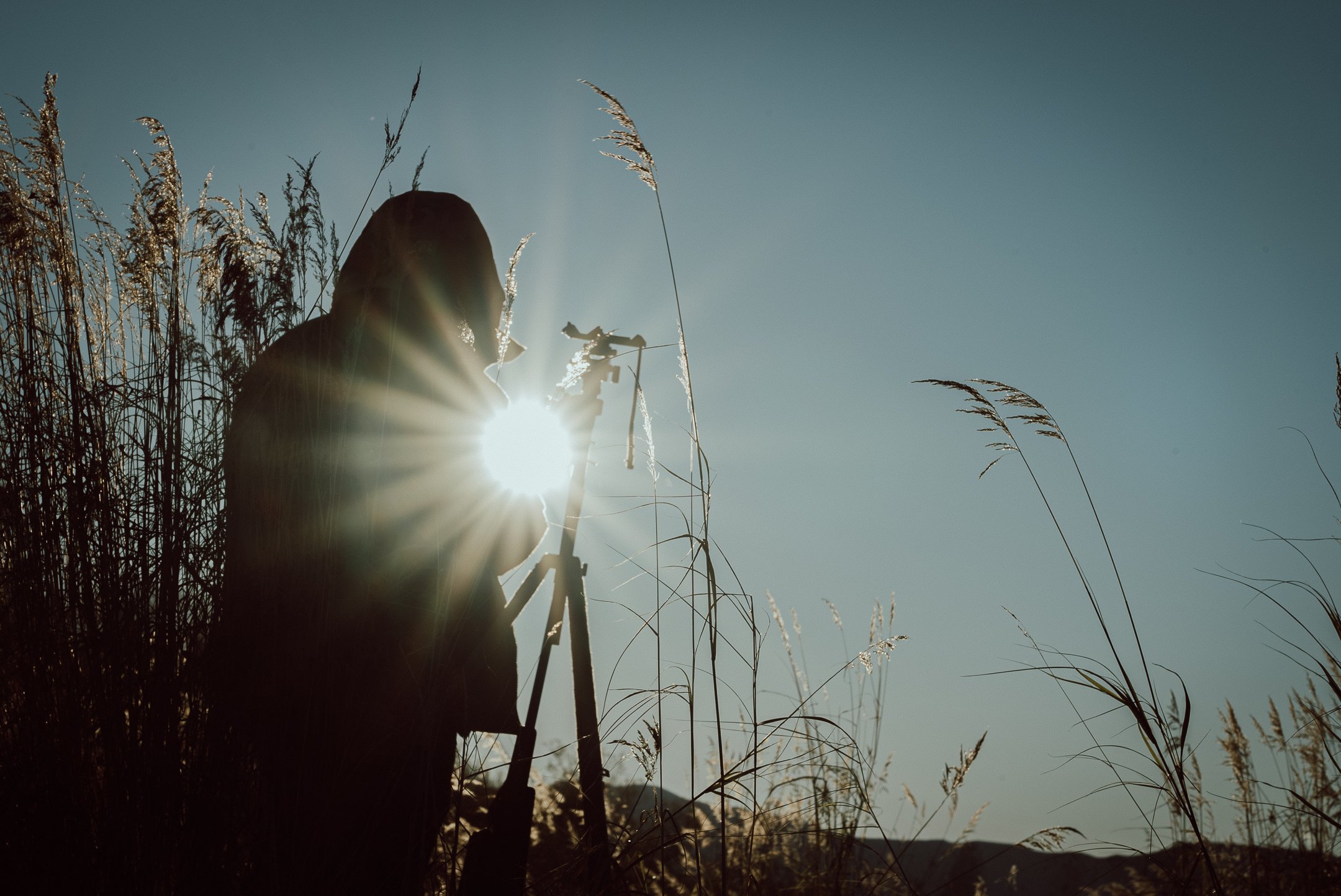
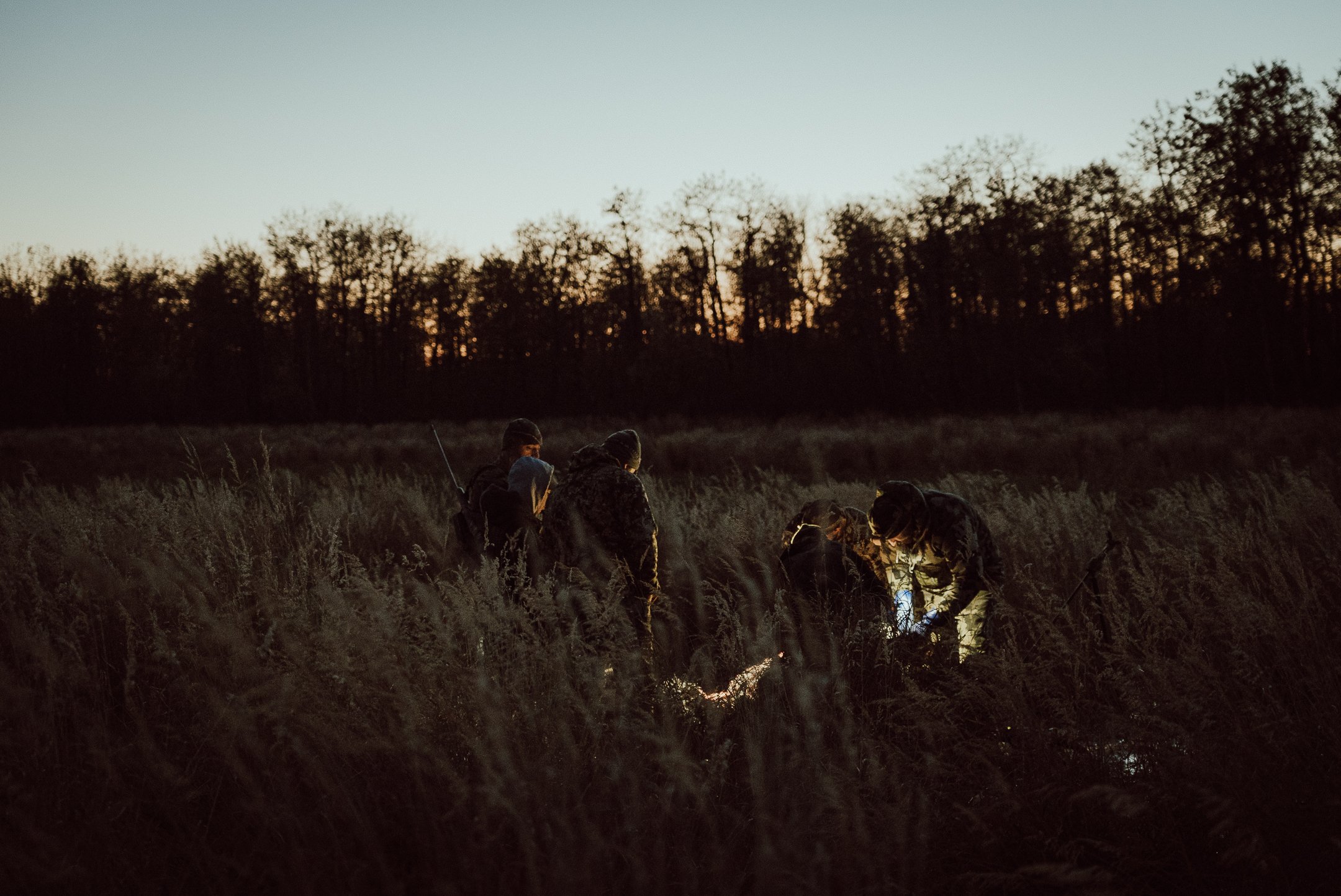
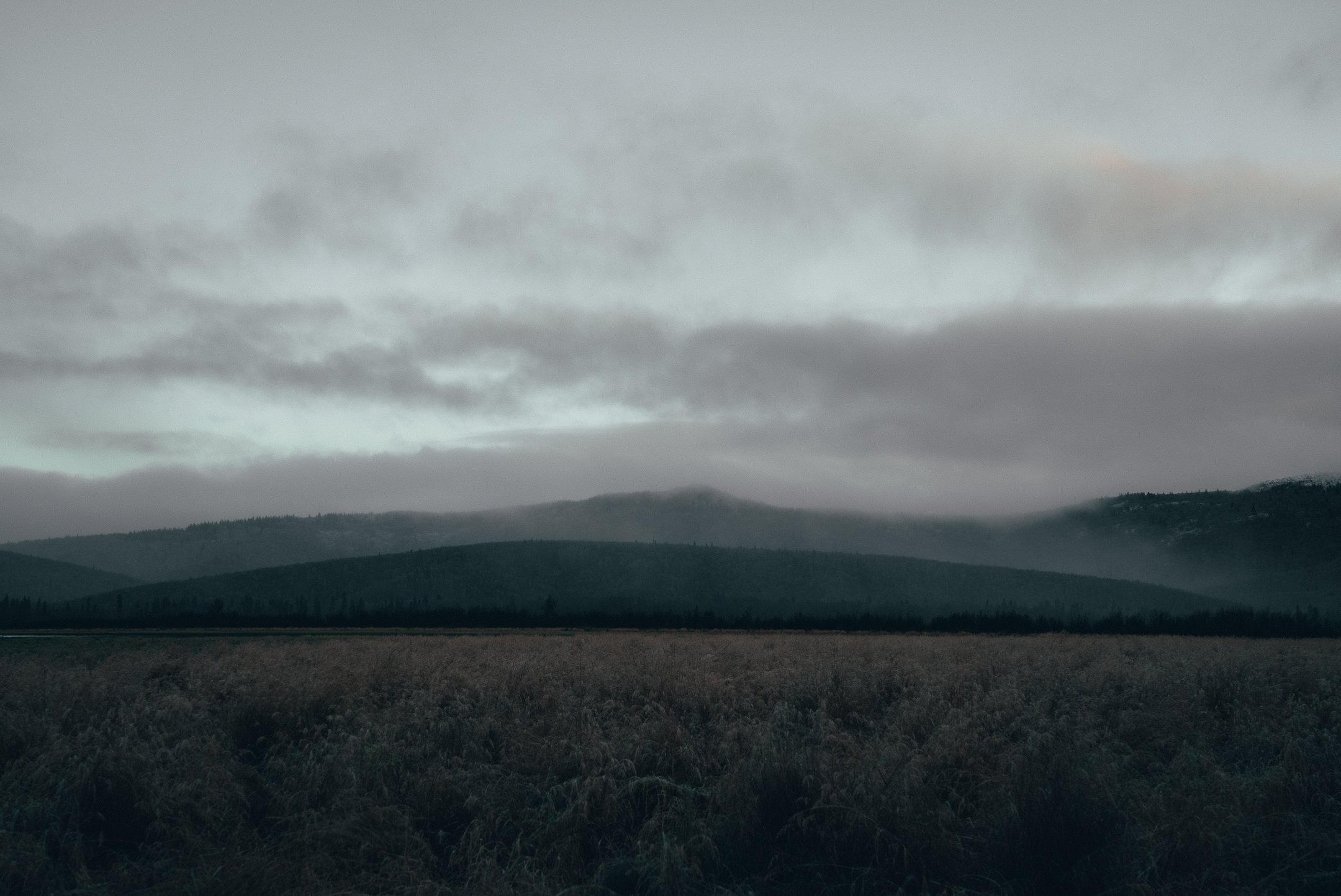
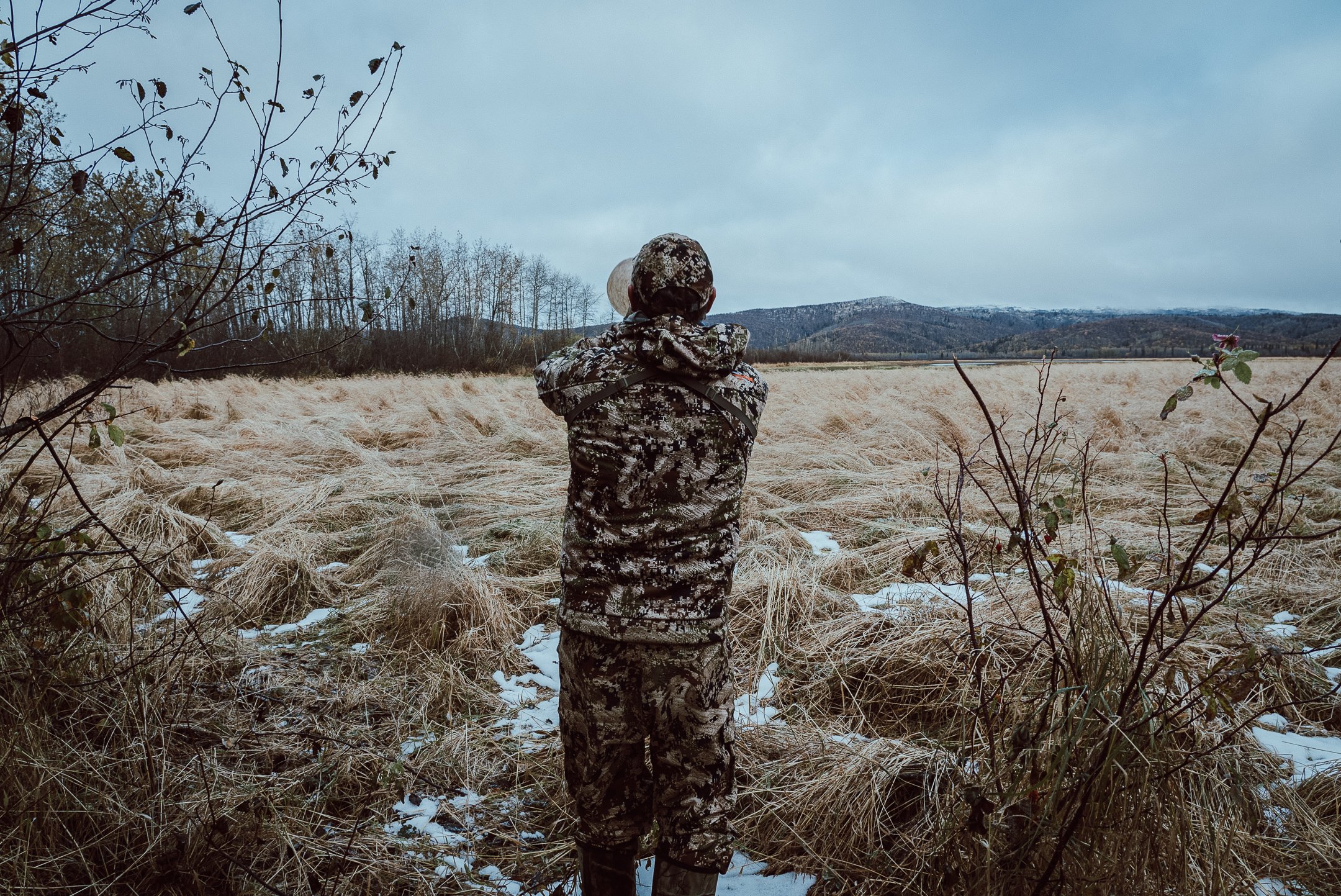

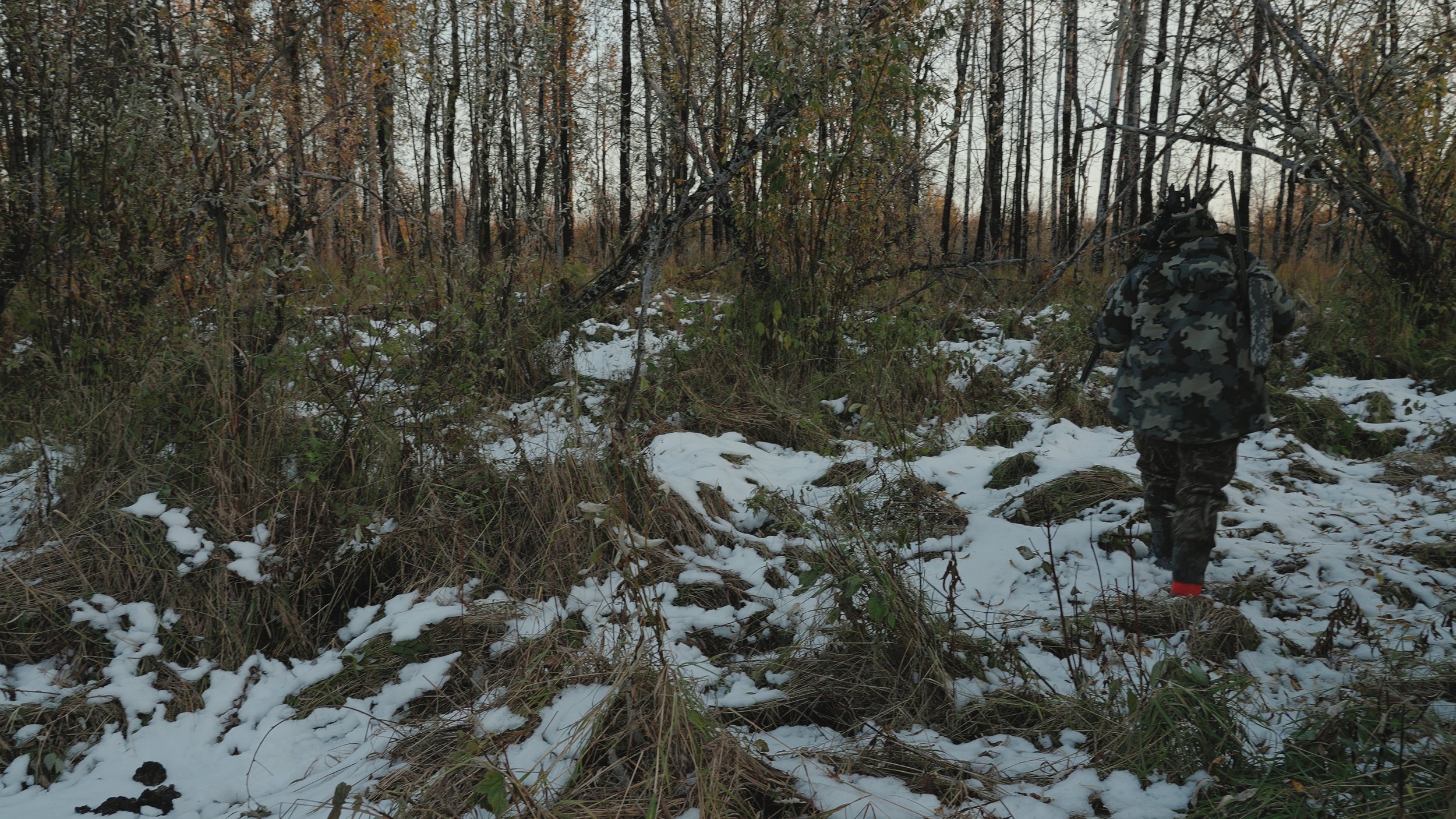

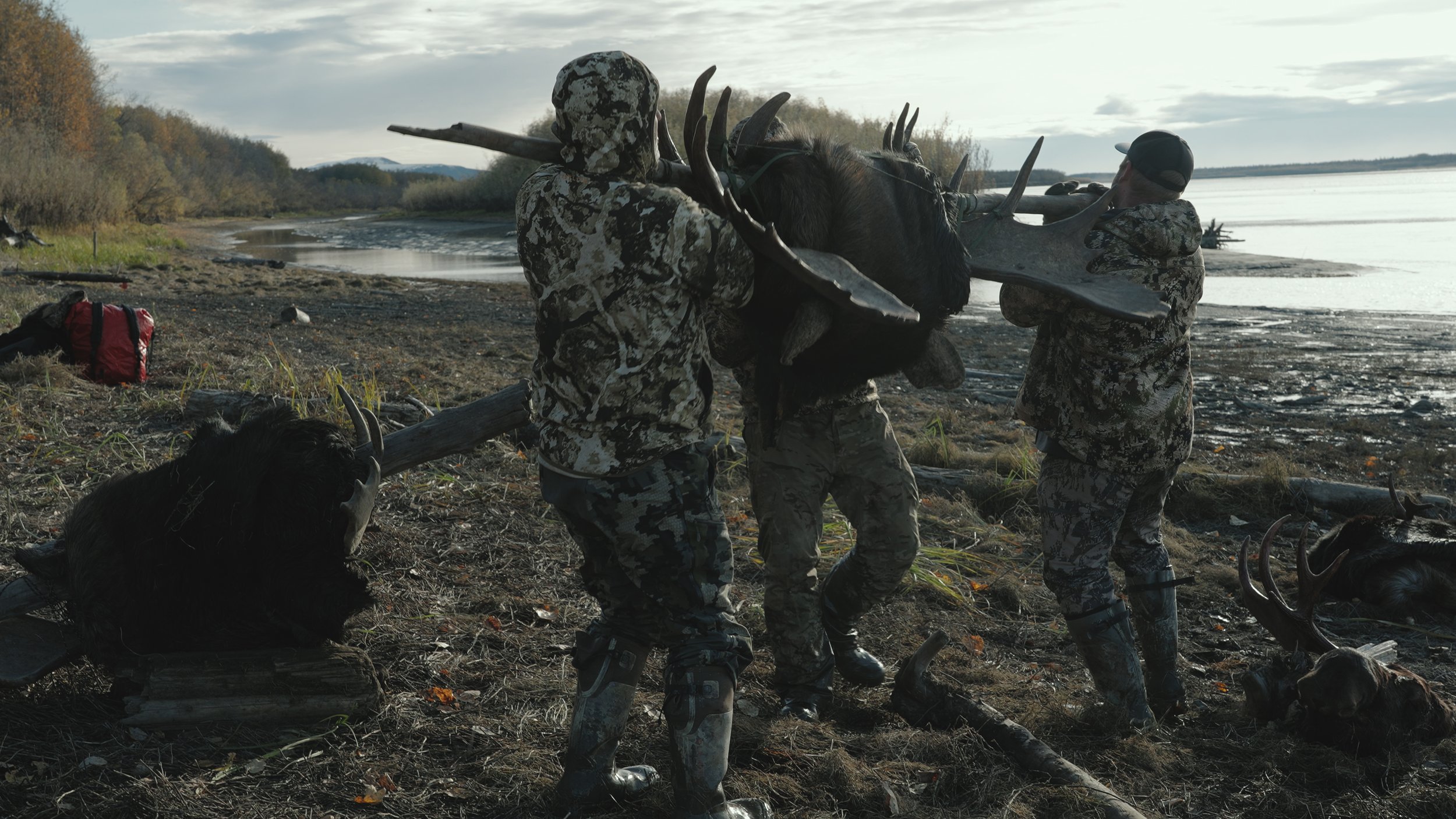


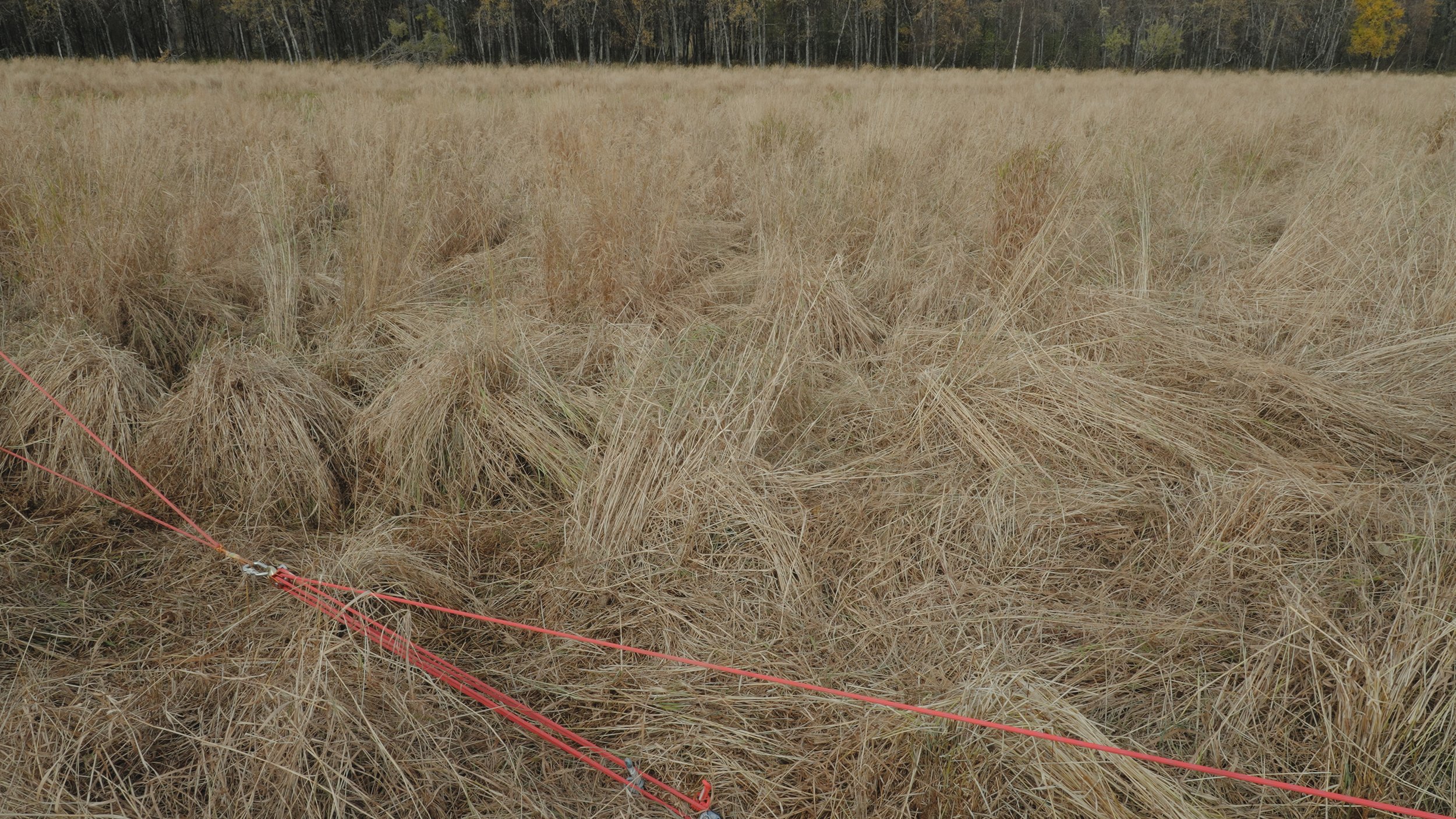
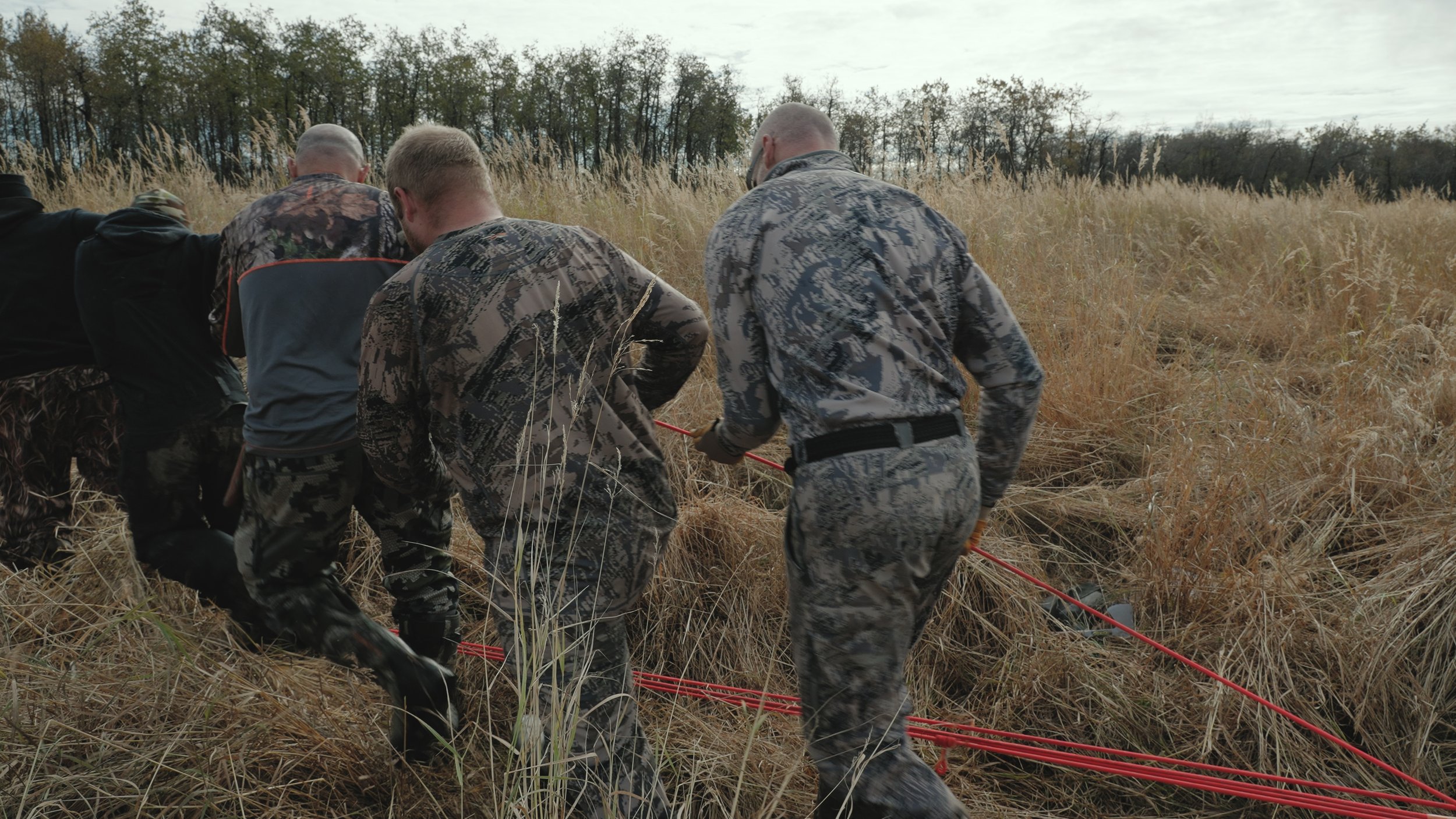

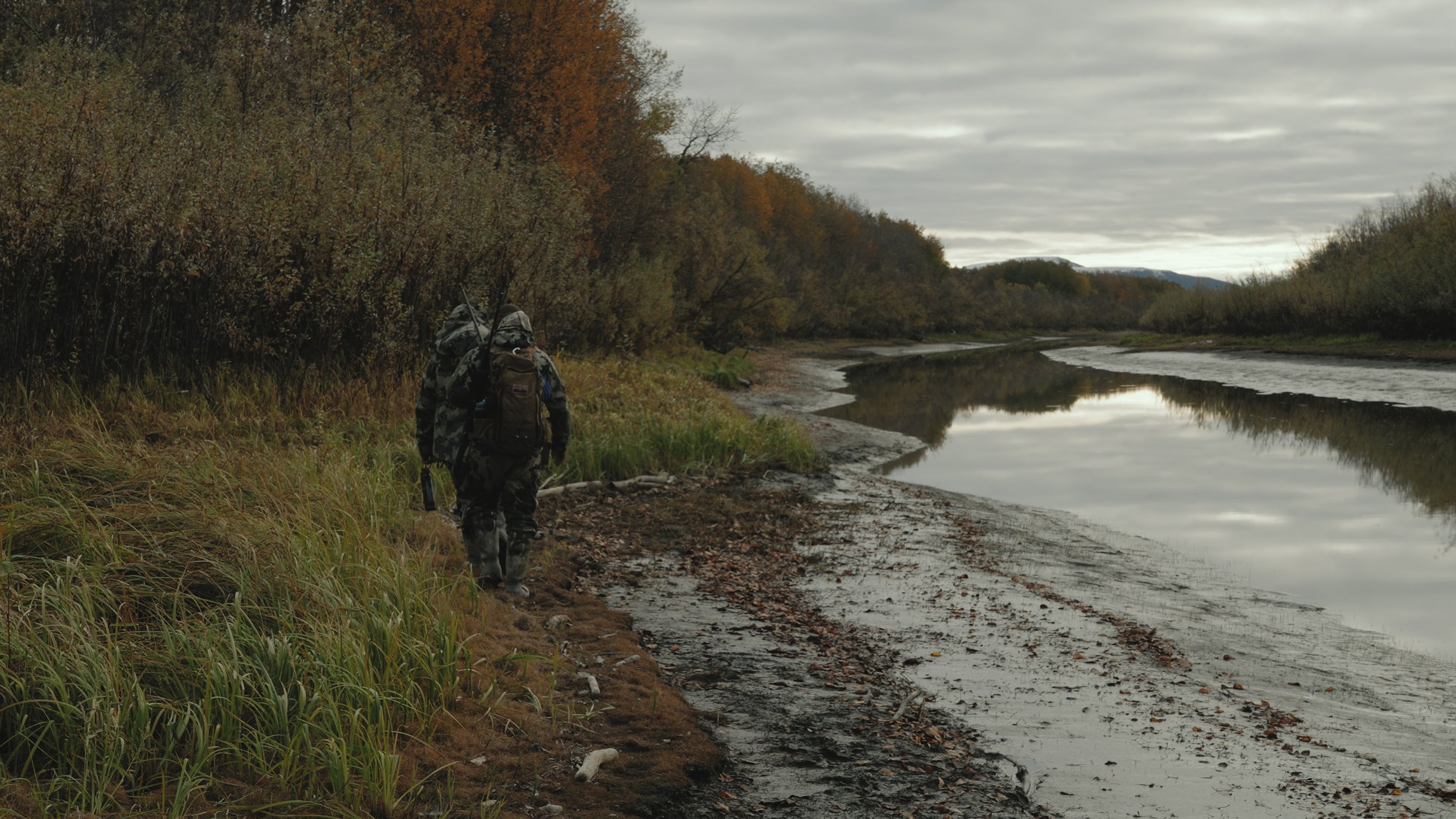
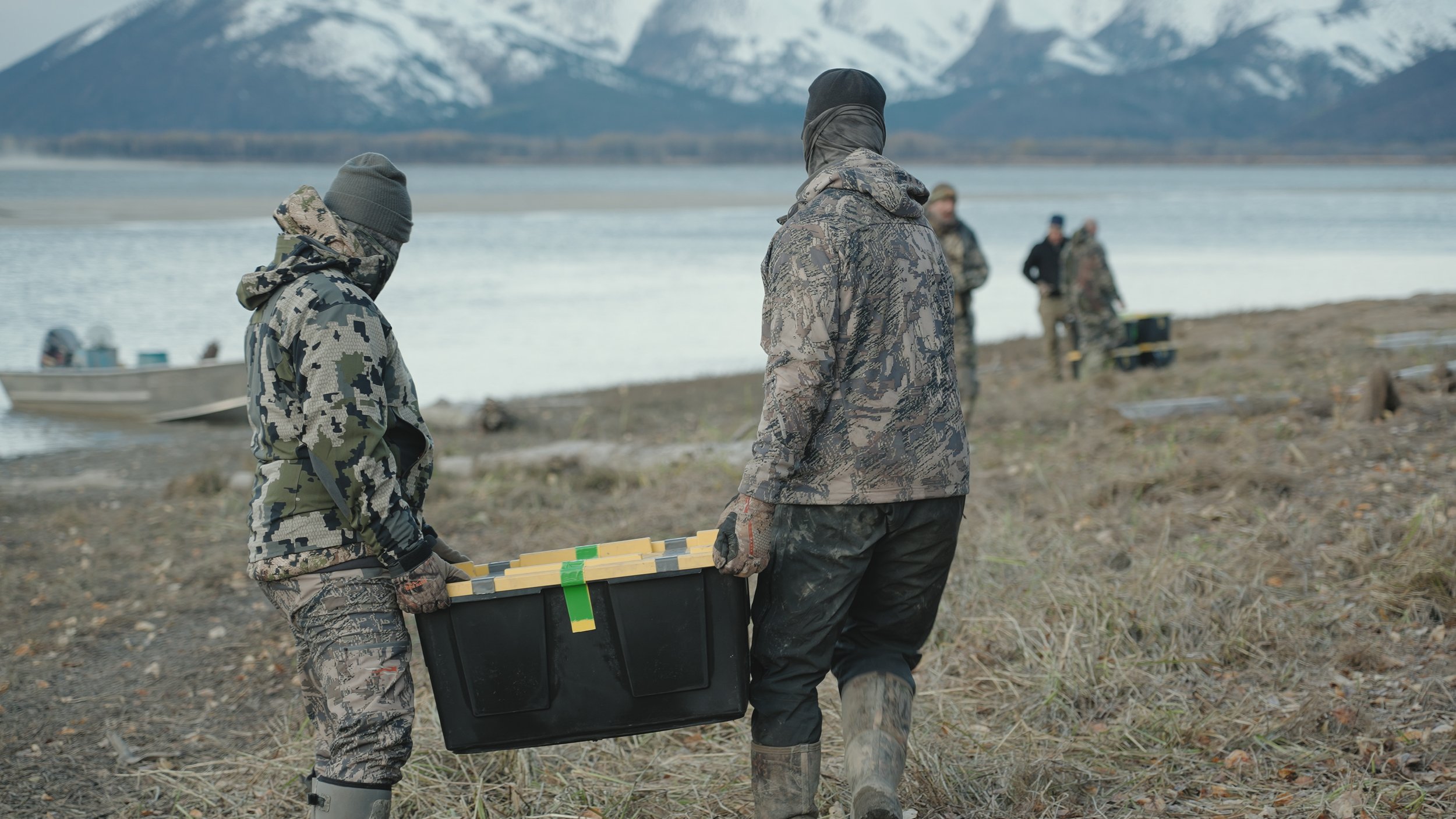
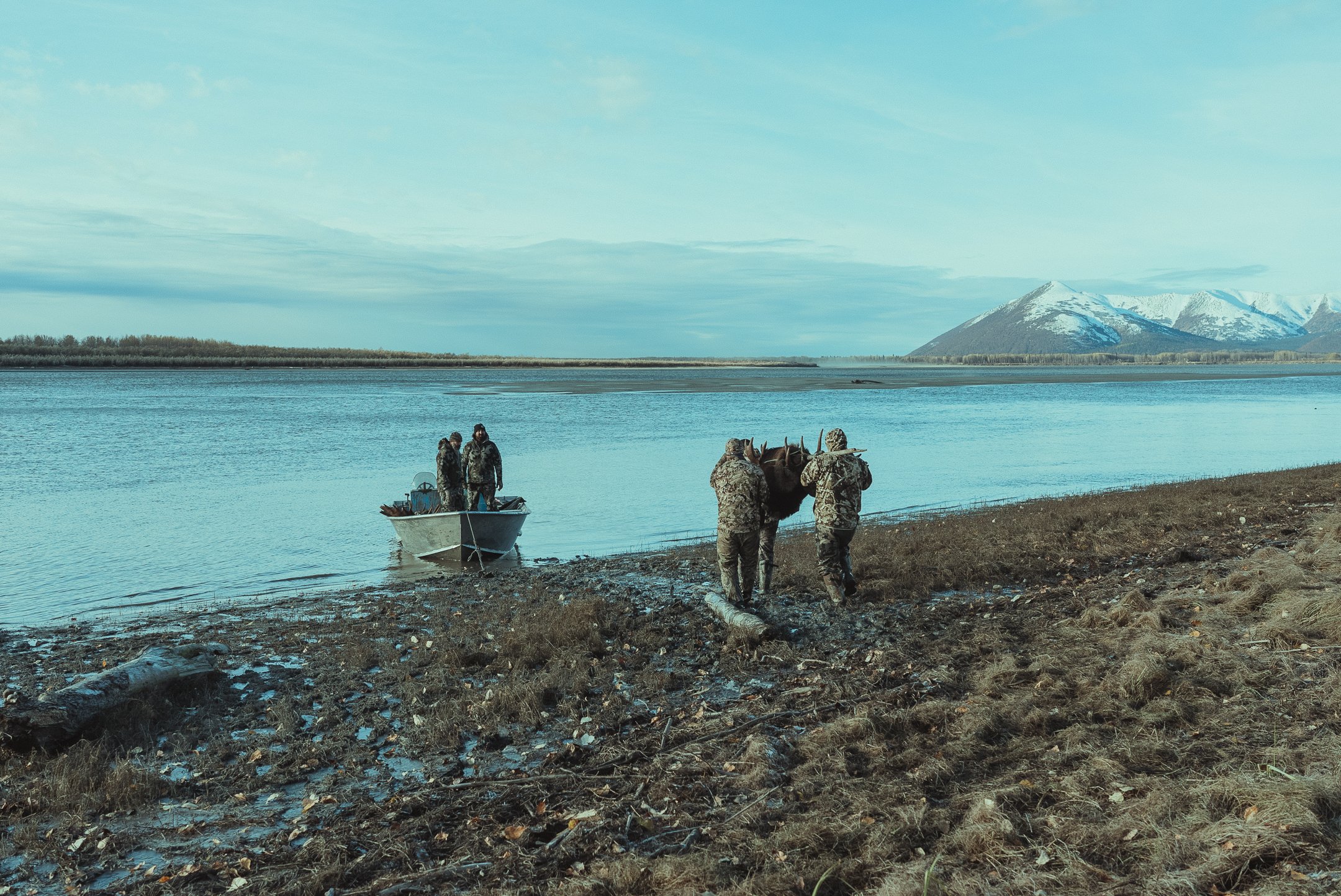
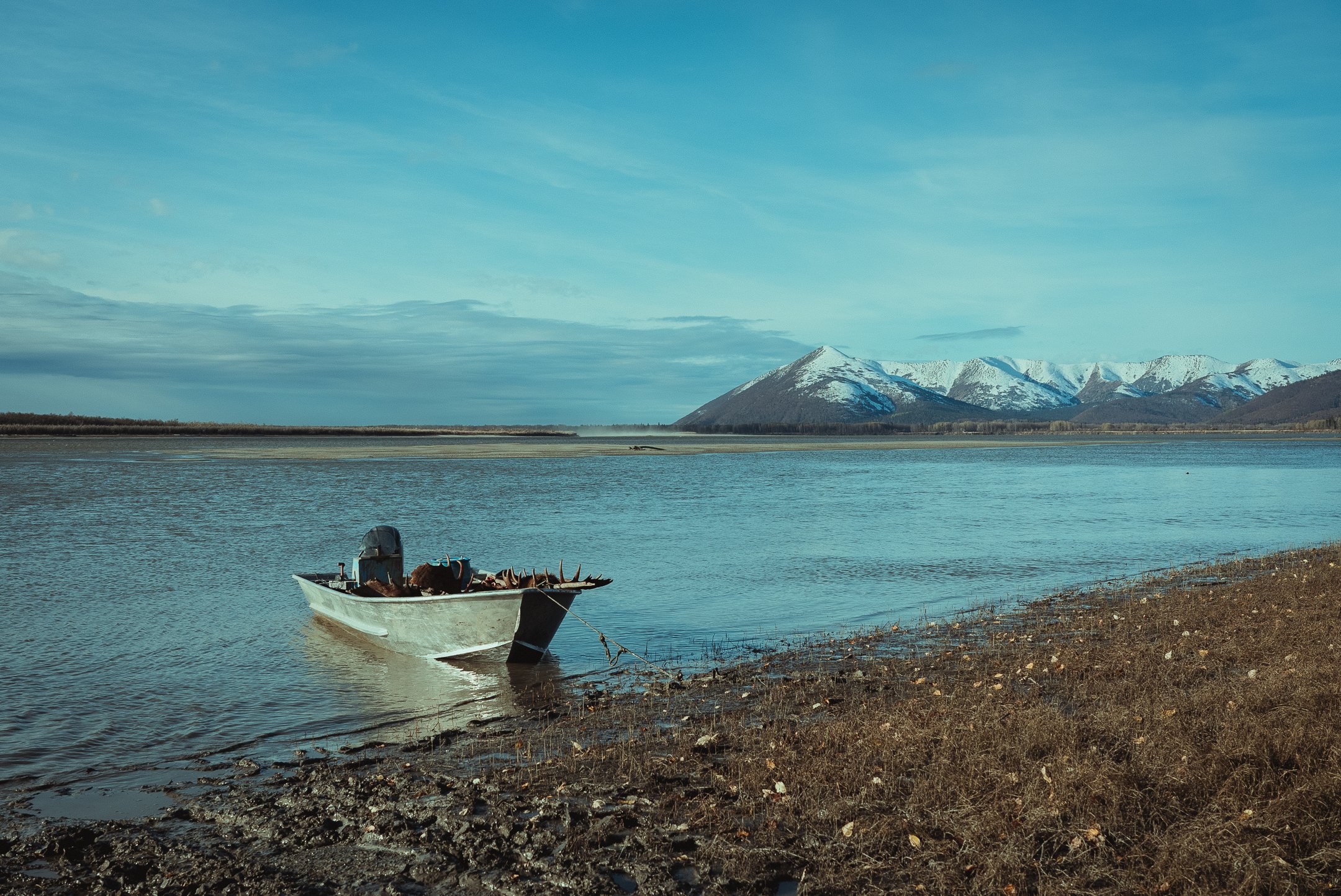
The Morning With No Gloves
One evening, as I was sloshing in the mud, up to my shins per usual, I fell. In the split seconds I had to decide what to do, I had to make sure my camera was held up high and did not drop in the mud, this led to my hand bracing my fall. My hand in the same thick mud I was trapped in. My hand hit the mud, sank in, and there I was, looking like an idiot playing twister in the cold Alaskan mud. The glove was in the mud, someone else grabbed my camera and then helped me up. My one glove was covered in mud. My only option was to rinse it off in the river. The problem was that this was my only pair of gloves, so I would be down a glove for a little while as it needed to dry. Luckily, we had been experiencing sunny weather, so between that and the fires we had going, I would get the glove back to normal eventually, but for one morning, I only had one glove. One glove on a morning where the temperature is in the 20’s is pretty much the equivalent to having no gloves. I may not have brought multiple pairs of gloves, but I did bring hand warmers, and those helped tremendously. The morning after this all happened it was a cold one, and we set out for a morning hunt. We went further than we had in previous days. To give an example of how cold it was, a few points of the river were slightly frozen over from the night before. As the boat moved through these parts, you could hear the ice shattering. So there I sat, hands numb, and trying to show my toughness to the former Navy SEAL I was sitting across from. He was covered from head to toe perfectly, and I can guarantee he wasn’t impressed, but more thought that this guy is an idiot. As we moved from spot to spot, my hands adjusted and I was able to make it through the morning. My gloves were ready to go the next day, but the morning with no gloves will stay with my forever.


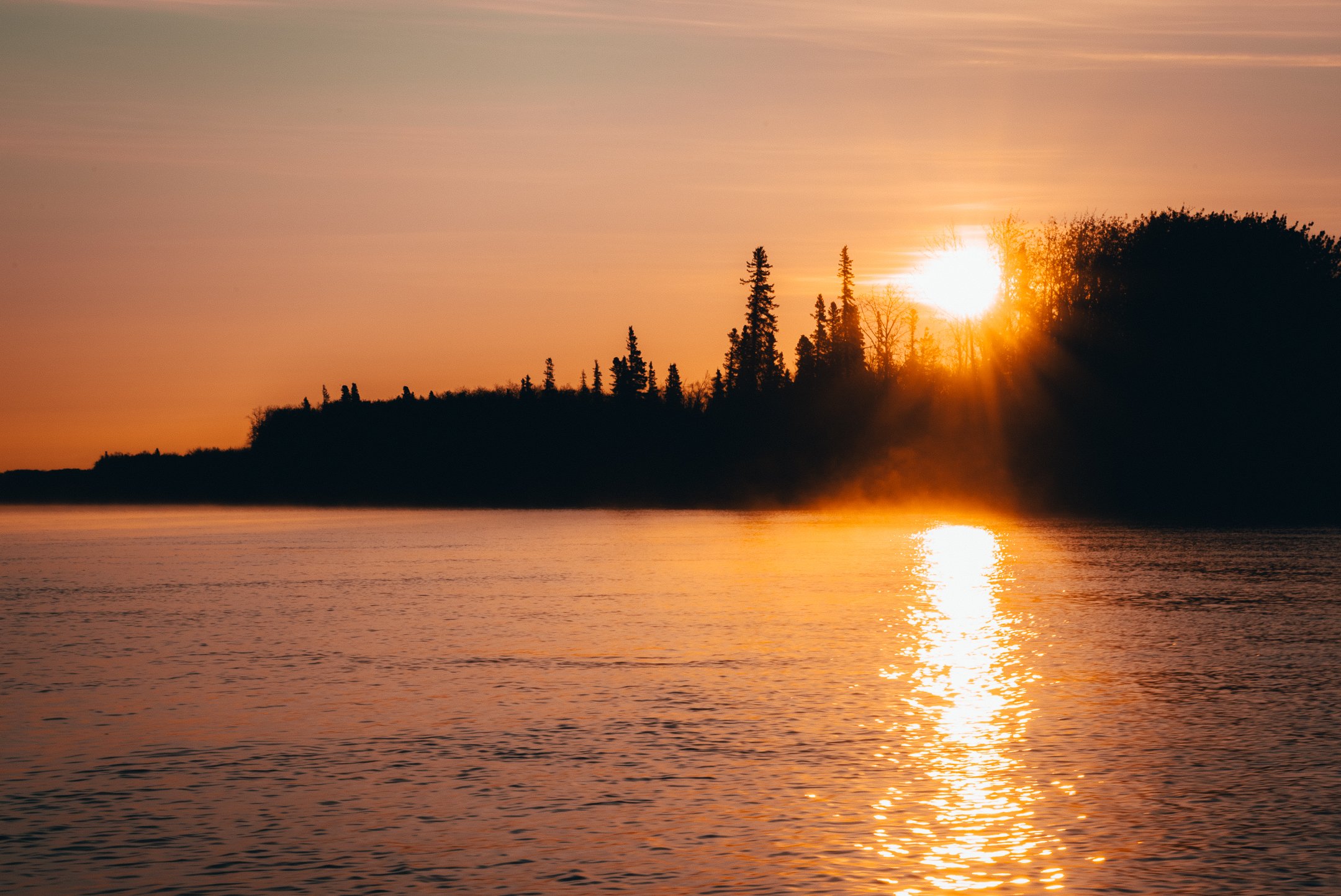
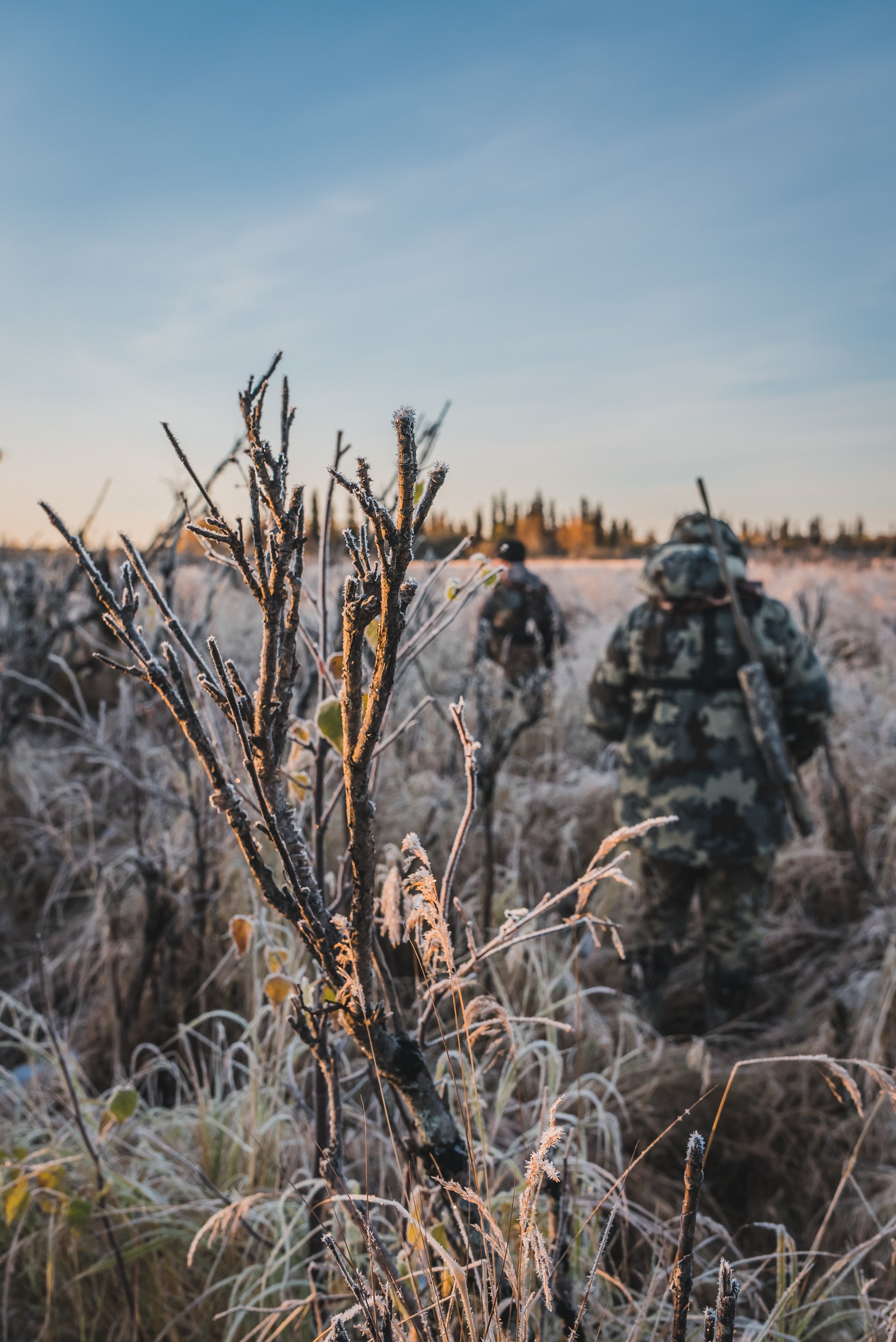
The Sound of Silence
I live in the middle of Phoenix, Arizona which is a pretty big city. It is not New York City, but it has its own version of hustle and bustle. Noise is pretty constant where I live, whether it is the sound of cars on the freeway that runs parallel to my apartment building or the sirens from the busy fire station that is right around the corner. Silence is hard to come by, and so when I found myself out in the middle of nowhere Alaska, the silence stood out to me so much. The absence of everyday noises can be so loud. The sound of cars is replaced by the breeze moving through the trees. The sirens are replaced by birds chirping as they fly around. You can hear everything and nothing all at the same time. And there is nothing quite like it. There was only one time during the trip that I was alone at camp. It was for about 90 minutes. I stayed back to get some drone shots of the boats leaving. I got the shots, brought the drone in, and that is when the silence hit me like the cold brisk air hit my hands the morning with no gloves. The noise that had become a constant in my life was gone, it was just the quiet and I. All I could hear was the sound of my breathing, the wind, and the occasional bird noise, but the most deafening sound was the silence. I sat with that silence knowing our time together would be limited. Soon, my companions would return, and the sounds that come with 8 men being together would join them. I enjoyed that silence. I closed my eyes. I listened to it. I listened to every little sound I could hear. Silence like that doesn’t come around often. I know I will experience it again, but I don’t know when. I needed it, and I need more of it in my life.
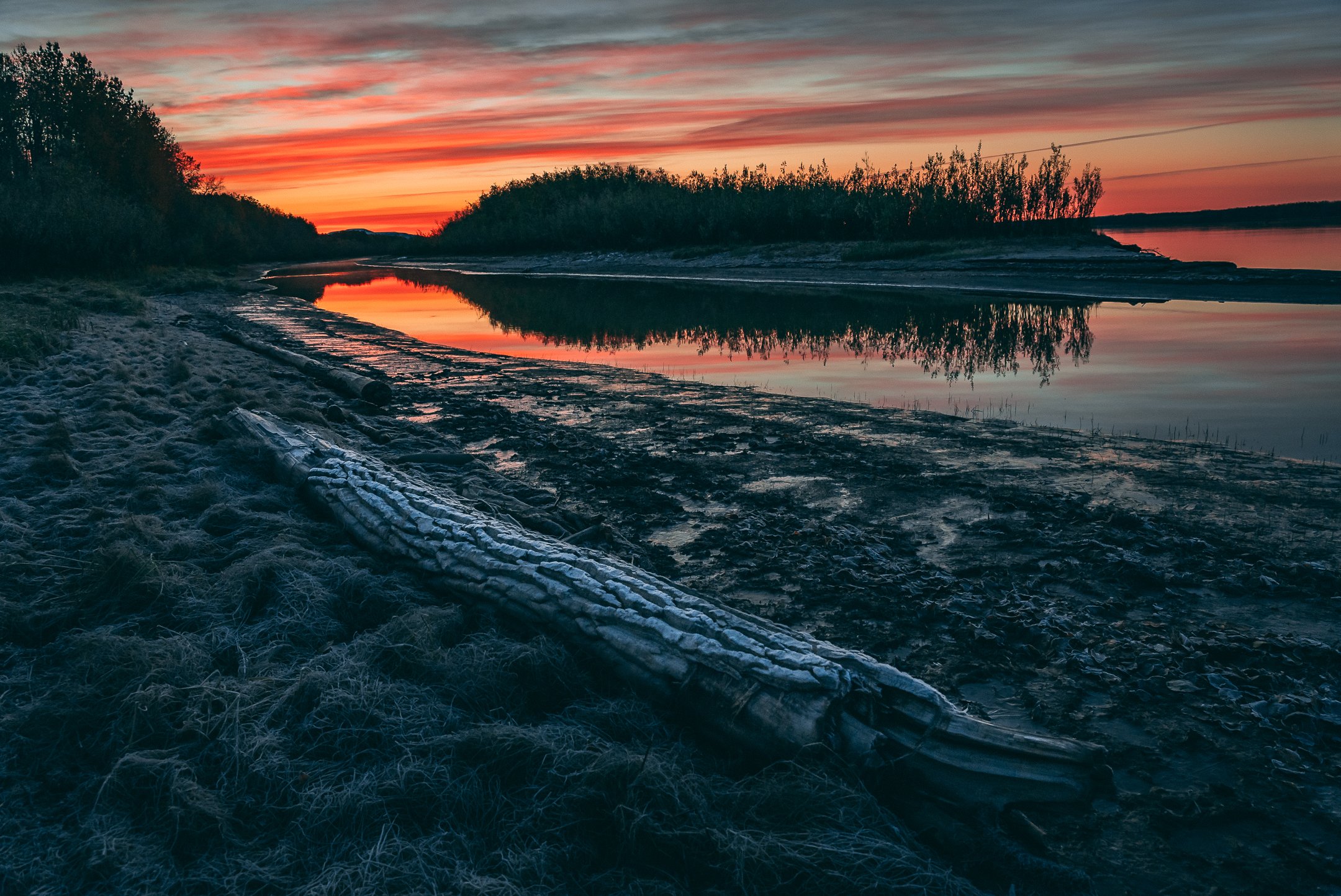
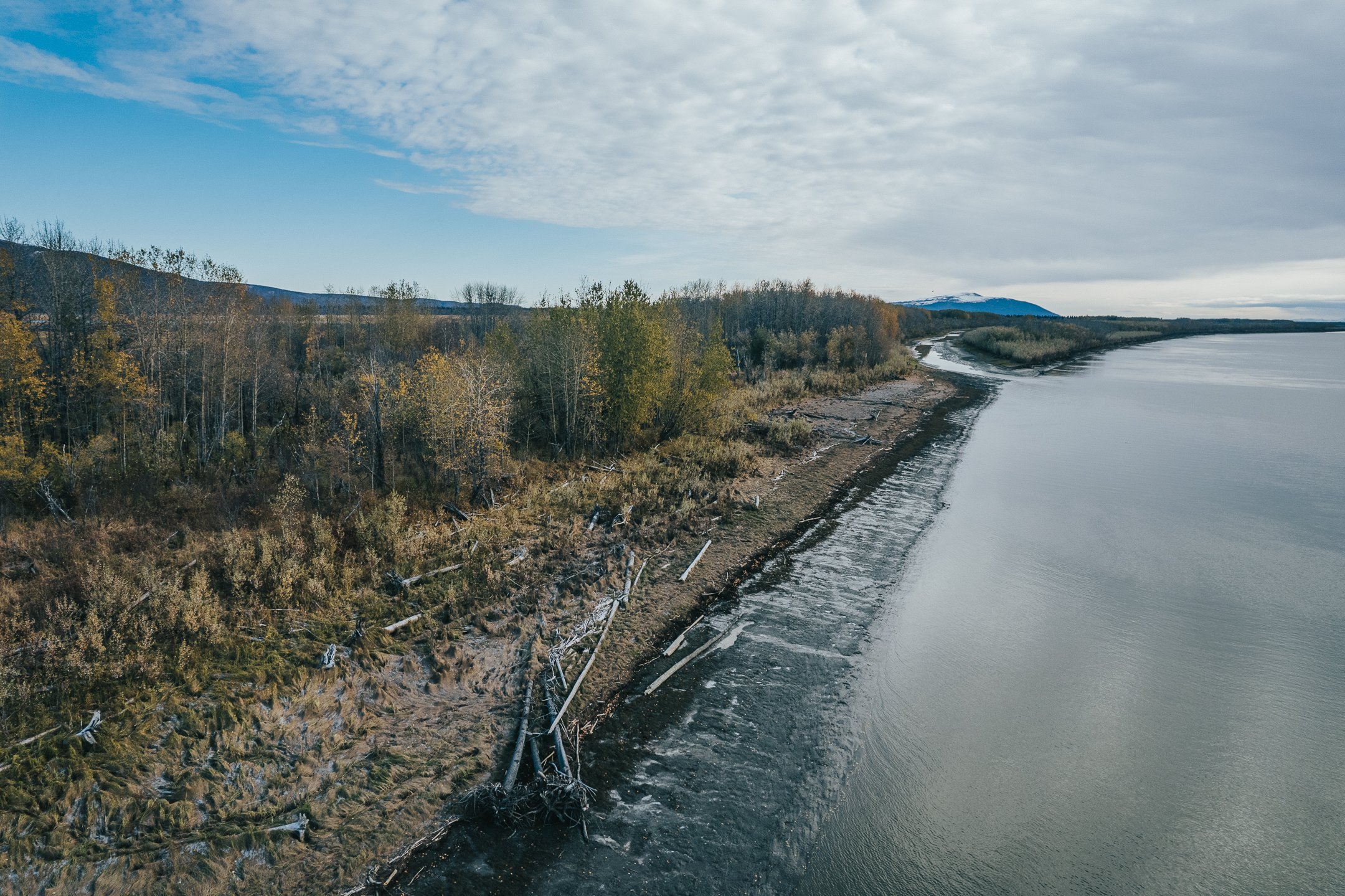
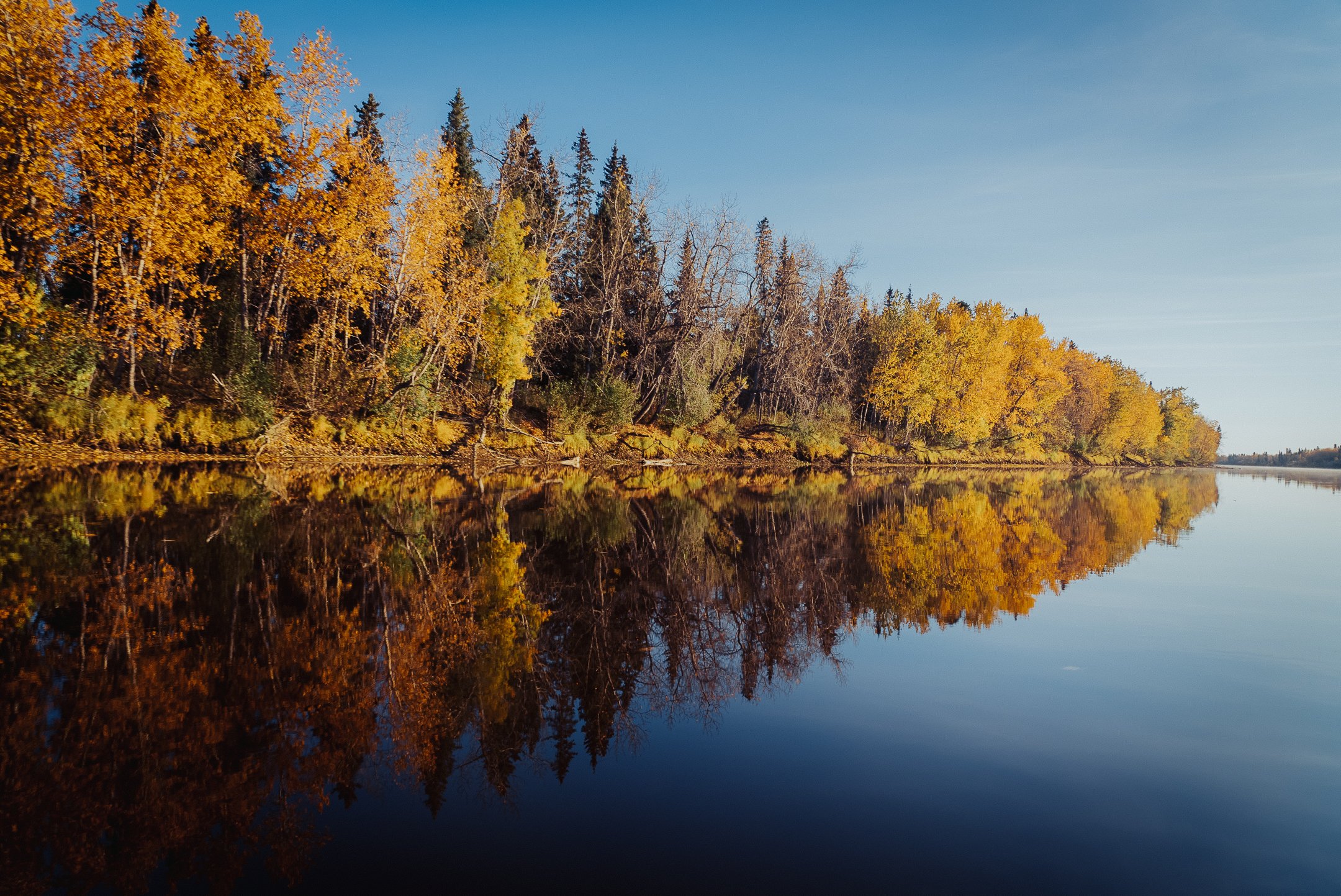
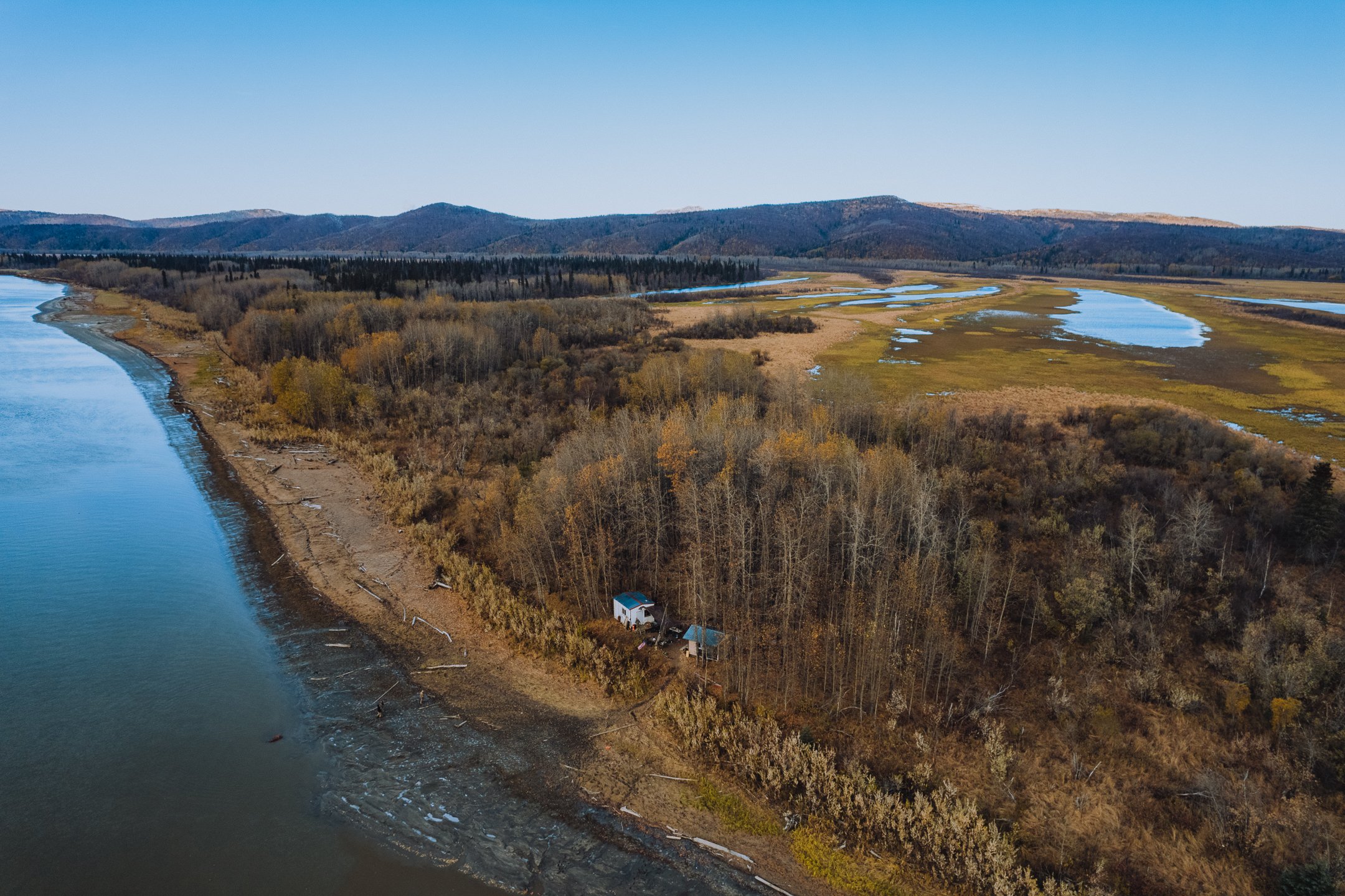
Rethinking how far we’ve really come as humans
Being out in the middle of nowhere I couldn’t help but think about how people lived in the past. The level of skill it took to simply survive. The constant battling of the elements, of nature, of predators, and most importantly the human psyche. We’ve reached the stage of humanity where convenience is accessible on levels that no civilization has seen. We want to go somewhere, we get in our cars, or hop on a plane. We want food, we go to the grocery store, or go through a drive thru, or order it on our phones. If we need to communicate, we have the ability to do so 24 hours a day. If we are sick, we have medicine, hospitals and doctors available to us. I am not hating on the advancements we have made as a society, I use them, but it took being out in the middle of nowhere and not having all of them at my fingertips to reflect on how different it must have been for those who came before us. Contemplating the world without jobs, mortgages, cell phones, bills, social media, and all other things that are now part of our daily lives. Thinking about what it must have been like to have the only thing you needed to do was survive each day. How to nourish your body. How to find shelter. How to do so without knowing what we know today. I think as a human being, we must find ways to tap into our primal instincts that allowed us to evolve into what we are today. This trip did that to a certain extent, but it was also still much easier than what those of the past had to experience. Maybe we aren’t meant to experience life on that primal level of those civilizations that came before use. But I can’t help but think about how it might help us. Being on this trip brought these thoughts to the forefront of my brain. I can’t help but appreciate the ease of being able to get a meal, or communicate, or receive medical treatment. I can’t help but think about the lessons we could all learn from getting a taste of that past life. I know several people who have never been in the middle of nowhere or lived like I did for 8 days in Alaska, and I can’t help but think about the impact that lack of experience might be having on them and civilization as a whole. I also realize that this line of thinking is completely out of touch with those who do live this way currently today. Those who don’t have access to water, food, medical supplies, and all the conveniences I have access to. I am sheltered from that so much in the way that I live. I am grateful this journey forwarded me the opportunity to think about all this. The world is a complicated place, and if not for adventures like this, I would not be able to get a taste of what it might be like outside of the bubble that I live in.
Will I ever hunt?
Having experienced hunting on this level has given me a chance to ask myself, if it is something I could see myself doing? For me the appeal to hunting an animal is purely primal. The concept of hunting in order to utilize an animal for all that it has to offer, is the most appealing aspect of the process for me. An animal can provide food, warmth, tools, and so much more. So many times in my life I have eaten food without appreciating where it came from. I also am a fan of putting in a lot of work in order to accomplish something. This trip showed me the work that goes into this process. I also learned that it is an expensive hobby to have. So yes, I would hunt, but I think the more primal the setting the better. I want to somehow travel back in time and do it in the way that civilization did it prior to it becoming the industry it is today. I am not sure if that is possible, and I am not dogging the way it is done. It is a challenging hobby. It takes a lot to pull off a trip like this particular one. For me, the urge to tap into the primal side of our humanity that we don’t encounter very much in our current society is how I would want my hunting experience to be. On this trip, that happened a little, but I also had luxuries that made the challenging parts more tolerable.
What Did I Learn?
This trip was an expedition unlike any I have ever done before. I have been doing freelance videography for over three years now, and it has taken me to some unique places, and allowed me to tell some interesting stories, this was no exception. I never sought to be a guy who makes videos about hunting, and I am not sure how many more I will do, but I have learned about the challenges that come with taking on such a project. I have also gained a new appreciation for all the shows shot out in the wild and how difficult that can be. Telling stories can be a rewarding experience, but when you also get to do it in a way that you learn more about yourself, it makes it that much more special.
I know hunting can be a controversial topic. I can understand why people would be against it, and I can now understand why people are for it. In order for me to come to a conclusion on something, it is helpful for me to understand both sides. I have experienced the hunting side, and now if I ever come across someone who is anti-hunting, I can listen to what they have to say with an open mind about what hunting is about. I do think there is a lot to learn about human nature in the process of hunting. I think it can bring a certain level of respect to mother nature if thought about properly. I learned a lot from this journey, but the most important thing I learned, is that I still have a lot of learning to do, especially about hunting and I am most certainly willing to do that learning.
If you have read this far, thank you, I appreciate your time.

